As we were leading up to Labor Day weekend, I was thrilled to know that the High Calling blog offered resources for use during this season since it is a natural time for church folk to teach, honor, and celebrate ordinary Christians and their calling into jobs. We are sent into all manner of work places, and we can serve God and neighbor there. Our bookstore is known for trying to affirm that.
offered resources for use during this season since it is a natural time for church folk to teach, honor, and celebrate ordinary Christians and their calling into jobs. We are sent into all manner of work places, and we can serve God and neighbor there. Our bookstore is known for trying to affirm that.
You know we often recommend books about “thinking Christianly” about our callings and careers, and we often link to articles, sermons, essays and other resources that help us bridge the all-too-common gap between church life and work life, between Sunday and Monday, as we sometimes put it. Besides The High Calling, we often tell folks about the Washington Institute on Faith, Vocation, and Culture, Redeemer Presbyterian’s Center for Faith and Work, the Cardus’ think-tank page on work and economics, Pittsburgh’s Serving Leaders, and other such good organizations.
I would be eager to hear if your church did anything special for Labor Day—we have tweeted and commented on facebook about the resource The High Calling was offering—and I know some of you were considering using their worship aids. Of course, this sort of worship project doesn’t have to be done on Labor Day Sunday—in fact, that may be to easy, seeming perfunctory. Let us know what your church does to equip the saints for their work in the world, especially this idea of relating Biblical principles and practices to the job site.
 We have often reviewed books on vocation and calling, as well as books about work and career (not to mention offering for free at our website the extensive bibliographical tool “books by vocation” for Christian perspectives on everything from science to law, art, medicine, education, business, counseling, engineering,and more.) We have not lately gathered together a large bibliography on vocation and work all in one big list. It has taken some time, but what a joy to pull together this list for you.
We have often reviewed books on vocation and calling, as well as books about work and career (not to mention offering for free at our website the extensive bibliographical tool “books by vocation” for Christian perspectives on everything from science to law, art, medicine, education, business, counseling, engineering,and more.) We have not lately gathered together a large bibliography on vocation and work all in one big list. It has taken some time, but what a joy to pull together this list for you.
The following list isn’t comprehensive—visit our shop and you’ll see even more on the shelves! But it is an intentionally curated set of selections and the descriptions should be a bit entertaining to read. As you know, we stock things from diverse publishers—from liberal Episcopalians to books from conservative Calvinist sources; there are books here by United Methodists and Roman Catholics, Pentecostals and non-Christians. And we find that many of the best books are themselves drawing on rather wide circles, offering surprises and depth. So it is quite a list with a handful of unique perspectives, all useful in their own way, we think.
We are happy to share it as our Labor Day gift to you. Print it out, pass it on.
Having a few of these suggested titles in your church library (on on your own shelf if you mentor college students or professionals) is a good witness; essential tools for your own toolkit. Helping people learn about these life changing books will bless them and bless you as you encourage them. Maybe you can step up to be a bit of an informal mentor, inviting a couple of thoughtful folks to read about vocation and calling, careers and work, and see how it goes. You’ll love doing that, I bet. And God’s Kingdom will be advanced.
If you are a pastor or work with collegiates, dare I say that not having some of these kinds of books around is nearly ministry malpractice? Yes, I dare, because I believe it. Unless you are in children’s ministry or are a chaplain at an retirement home, if you are a pastor and you haven’t read these kinds of books and haven’t shared a few with anybody in your circles of influence, I believe you are not doing your job. There isn’t much shame in that, mind you; most clergy aren’t taught this in their seminary training. But you are invited here and now to remedy this. Get on this train, as it’s on the move. Not a few analysts predict that this will continue to be a vital aspect of ministry in the next decades.
Younger Christians, especially, long to see their faith integrated into their deepest passions, using their gifts in meaningful employment and to have their local church help them with this. It may be a deal-breaker or a game-changer for some. In fact, the important research on why 20-somethings are leaving your church presented in You Lost Me by David Kinnaman (Baker; $17.99) indicates that this is exactly one of the reasons. Additionally, consider the good chapter “Called, Not Employed” in The Next Christians by Gabe Lyons (Multnomah; $14.99) if you don’t believe me that this is a passion of some of the folks who now feel excluded from your congregation. Or come to Jubilee 2013 this February in Pittsburgh and see for yourself as 2000+ college students show their enthusiasm for taking up their vocations and callings corem deo, soli deo gloria. Yep, they talk like that there. At least if I have anything to do with it. Ha!
So. Pray for us as we try to sell these sorts of books, please. We long to have conversations about these very things. We have inventory here, waiting to be utilized, dispatched to places where, we believe, there are leaders who need an easy way to start some conversations and cast some vision. We know that you resonate with this aspect of our bookstore work, and trust you see yourself as part of this story.
Maybe you can think of ways to integrate this vision into your own circles at your church, fellowship, small group or Bible study class. Maybe you can find liturgies and prayers to help your own worship services relate well to your parishioners, the butchers, bakers, and candlestick makers who sit in your sanctuary. (Not to mentioned the unemployed and under-employed.) Let’s us know what your doing, and if we can help in any way.
***
I recall a great time I had speaking at a special chapel service at a Christian college a year or so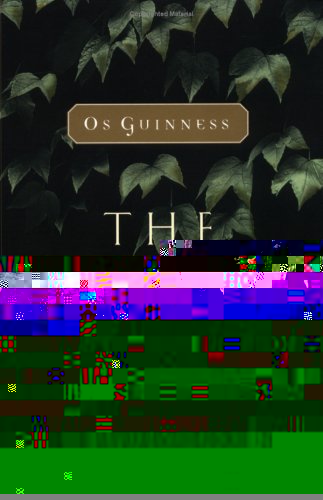 ago. The Career Development office put together the service, and they included a responsive reading from the book The Call: Finding and Fulfilling the Central Purpose of Your Life bu Os Guinness (Nelson; $17.99.) Did they know it is one of my all-time favorite books? Did they expect that I would cite it? It was such a fitting way into a liturgical celebration of God’s call into His kingdom, and the subsequent duties to serve the great King in every zone of life. Of course we shouldn’t reduce our many callings to only our paid jobs, and, in fact, the director of the Career Development office explained to me that they (ironically) try not to use the word “career” for a variety of reasons, noting the baggage and ass
ago. The Career Development office put together the service, and they included a responsive reading from the book The Call: Finding and Fulfilling the Central Purpose of Your Life bu Os Guinness (Nelson; $17.99.) Did they know it is one of my all-time favorite books? Did they expect that I would cite it? It was such a fitting way into a liturgical celebration of God’s call into His kingdom, and the subsequent duties to serve the great King in every zone of life. Of course we shouldn’t reduce our many callings to only our paid jobs, and, in fact, the director of the Career Development office explained to me that they (ironically) try not to use the word “career” for a variety of reasons, noting the baggage and ass
umptions such a phrase carries. So, yes, we are called to a variety of places, various “offices” or tasks, with all sorts of God-given opportunities and obligations. We are called and sent. Dr. Guinness is still my favorite author on this and The Call is a book I revisit over and over. If you don’t have it, please, please, consider it. The discussion guide in the back is very strong, too, making it an exceptional resource. And, hey, you can make a responsive reading out of it for your next liturgy that worships around this theme.
BOOKS ON VOCATION & CALLING
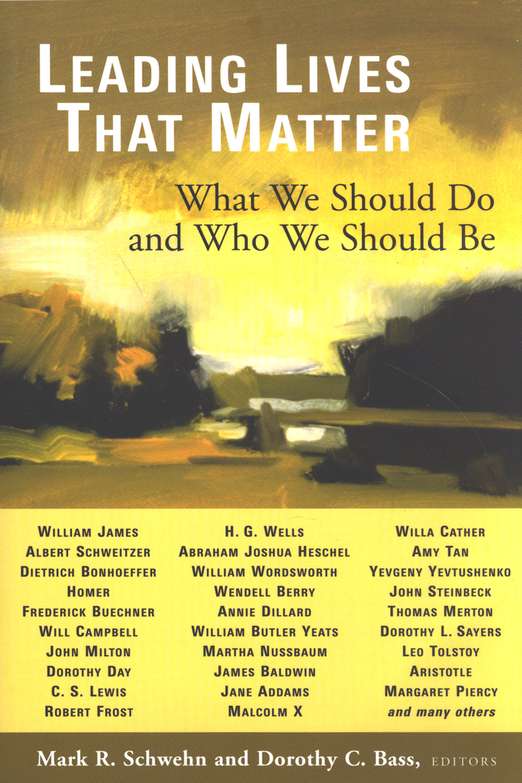 Leading Lives That Matter: What We Should Do and Who We Should Be edited by Mark Schwehn & Dorothy Bass (Eerdmans) $26.00 With their huge involvement in the Lily grants programs to encourage vocational thinking at Christian colleges and seminaries, it was natural that they compiled this great, great (and great big) resource about living lives with purpose and influence. I’ve raved about this at BookNotes from time to time as it includes great literary figures (many not necessarily Christian) and is just such a rich and wonderful resource—at least for those who love great writers, etc. Poets, mystics, reformers, philosophers, writers and leaders of all sorts are excerpted nicely, from Homer and Milton to Dietrich Bonhoeffer and Dorothy Day, Wendell Berry to Robert Frost. Highly recommended.
Leading Lives That Matter: What We Should Do and Who We Should Be edited by Mark Schwehn & Dorothy Bass (Eerdmans) $26.00 With their huge involvement in the Lily grants programs to encourage vocational thinking at Christian colleges and seminaries, it was natural that they compiled this great, great (and great big) resource about living lives with purpose and influence. I’ve raved about this at BookNotes from time to time as it includes great literary figures (many not necessarily Christian) and is just such a rich and wonderful resource—at least for those who love great writers, etc. Poets, mystics, reformers, philosophers, writers and leaders of all sorts are excerpted nicely, from Homer and Milton to Dietrich Bonhoeffer and Dorothy Day, Wendell Berry to Robert Frost. Highly recommended.
Everyday Missions: How Ordinary People Can Change the World Leroy Barber (IVP) $15.00 Believe me, I could list a dozen good books on vision, purpose, making a difference, but this one is a favorite and is the sort of resource that helps us approach the topic of vocation. Barber has excellent Bible studies here of people who have been called, relates these Scripture case studies to ordinary folks today, reminds us of the vision of cultural renewal as we deepen our discipleship, taking up the call to love and serve others in all that we do. The centerpiece chapter, by the way, is exactly on vocation. Barber is the president of Mission Year so the book naturally carries endorsements from Tony Campolo, Shane Claiborne and urban activist Bob Lupton. Yes, there are burning bushes and ladders to heaven in the Bible, but when it comes to what we do with our lives, Barber helps us realize that that isn’t usually how it works. God calls us to respond to Christ’s love and the world’s needs, seeking the Kingdom in our sphere of influence. Good, good stuff!
Calling: A Song for the Baptized Caroline A. Westerhoff (Seabury) $15.00 This more recent edition of a book published by Cowley in the 90s is considered a classic by some. Westerhoff is a great, Southern storyteller and a mature Episcopalian priest and consultant. These stories weave together a profound book, noting that we must listen to the narratives that shape who we are, attend to baptismal themes, and, in community, discern notions of calling. This is less about vocation and work, but is still a moving and rich reflection, especially for those who are called to ministry. A few chapters are very, very rich.
The Preaching Life Barbara Brown Taylor (Cowley) $17.95 The first half of this is a beautifully rendered memoir of her conversion to faith, her sense of calling into ministry, and her eventual vocation as an Episcopal preacher. There are a few extended passages from which I often read out-loud in workshops and talks—God speaking to her through creation, the role of sacraments, the significance of the ordinary (themes she unpacks wondrously years later in her beloved An Altar in This World.) Her well-told reminder on how everyone’s workplace can be a place for sacramental experience of God’s goodness and grace is worth the price of the book. A few of these pages mean the world to me, and I had to list it.
A Journey Worth Taking: Finding Your Purpose in This World Charles D. Drew (P&R)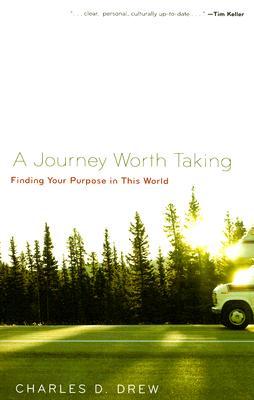 $12.99 Some have told me this was the best combination of the Biblical overview of creation-fall-redemption-restoration story of Scripture and the language of purpose (exploring, then, the themes of vocation and call) that they’ve ever read. Rev. Drew is certainly a solid writer, well crafting mature sentences in wise and wonderful ways. We suggest it often and heartily commend it for any readers. Endorsements from the likes of Tim Keller remind us that it is highly regarded, well considered, helpful and theologically rich, without being arcane or abstract. Excellent.
$12.99 Some have told me this was the best combination of the Biblical overview of creation-fall-redemption-restoration story of Scripture and the language of purpose (exploring, then, the themes of vocation and call) that they’ve ever read. Rev. Drew is certainly a solid writer, well crafting mature sentences in wise and wonderful ways. We suggest it often and heartily commend it for any readers. Endorsements from the likes of Tim Keller remind us that it is highly regarded, well considered, helpful and theologically rich, without being arcane or abstract. Excellent.
Don’t Waste Your Life John Piper (Crossway) $13.99 This doesn’t fully develop the theme of vocation and calling, but it is a compelling sermon, inviting us to take up our duty to find joy in Christ alone, make a difference for His Kingdom, to glorify God in all our days, and to think about what God might demand of us as we risk all for Christ’s reign and glory. From young adults to retirees, Piper doesn’t let anyone off the hook. Life is short, don’t give up the call to exalt Christ! Some may find it carries a bit too much belligerence and brimstone, but many have appreciated his Godly passion and tone of no compromise.
Besides the general challenge to live for God, there is a very thoughtful chapter called “Glorifying God in the 9 to 5” that I think is nearly brilliant, listing four ways human work is different than the work of animals. He explains what it means to do our daily jobs (a) intentionally to God’s glory, (b) for our neighbors good, (c) using the gifts and passions God has given to us uniquely, and (d) doing so in ways that are consistent with the way the creation is structured; that is, we think about the very way we do our jobs, making sure we do them in a normative way, fittingly. (He doesn’t cite, but could, William Tyndale’s old admonition for tinkers to “look at their shoes” to learn what God wants them to do, or how Isaiah that tells how farmers learn from God by paying attention to the planting of seeds, the creation itself. Sounds a bit like Dorothy Sayer’s famous essay “Why Work” doesn’t it?
What’s Your Call: What Are You Doing Here? Gary Barkalow (Cook) $14.99 Kudos to the “new” David C. Cook for bringing out upbeat and relevant books, each loaded with faith and gusto and youthful verve. There are cool graphics and good pictures, here, even. I like this book, a broad examination of all sorts of senses of calling. It is pretty inspiring, energetic, inviting us to “discover God’s destiny and design” and live alerted to the “choreography of God.” It talks about story, about the assaults against our sense of calling, and ponders if call is a “job or a role.” The author works with men and women through The Noble Heart, and this carries an enthusiastic endorsement from Len Sweet, who says that “Gary believes your calling makes you an artist. Read this book to discover the beauty of your art.” See what I mean? Fun!
This is Our Calling edited by Charles Richardson, foreword by Rowan Williams (SPCK) $18.00 We import books from England not only because we enjoy serving readers interested in global authors, but because, in this
case, the Church of England has done some remarkable work in some areas. SPCK is renowned as a thoughtful, liberal, mainline denominational press. Here, they’ve convened a handful of authors to do reflection pieces, Biblical and theological, on various aspects of knowing one’s calling. The authors are women and men, but most are Ango-Catholic priests. It is not just for those involved in ministry, and there are remarkably practical and evocative study questions, sidebars, conversation starters. The study that produced this book was done jointly by Affirming Catholicism and the Society of Catholic Priests.
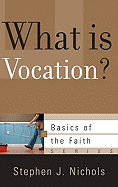 What Is Vocation? Steven J. Nichols (P&R; $3.99) This is a wonderful, small booklet, similar to the companion booklet What is A Christian Worldview by Philip Ryken (P&R; $5.00) that we often promote. It could be used in small groups, a quick adult ed class, or given to high school seniors. Steve gets it just right; he’s a nearly local guy, by the way, a Lancaster friend, writer of popular level books on church history and several biographies of folks like Luther and Edwards. This brief staple-bound booklet is as handsome as it is readable and could be life-changing. Steve is evangelical and Reformed but I am confident that this little book could be used in any sort of congregation. Maybe you should order a dozen or so and pass ’em out—at least to youth who are thinking about going off to college, or young students needing to be encouraged to think about calling as they consider their majors, or for adults who may be longing to be affirmed in their line of work but aren’t up for reading a big study. (Oh, if only pastors did this more for their flocks, affirming the work-life of the laity! What a difference it could make!) The best small (and least expensive) resource of which we know.
What Is Vocation? Steven J. Nichols (P&R; $3.99) This is a wonderful, small booklet, similar to the companion booklet What is A Christian Worldview by Philip Ryken (P&R; $5.00) that we often promote. It could be used in small groups, a quick adult ed class, or given to high school seniors. Steve gets it just right; he’s a nearly local guy, by the way, a Lancaster friend, writer of popular level books on church history and several biographies of folks like Luther and Edwards. This brief staple-bound booklet is as handsome as it is readable and could be life-changing. Steve is evangelical and Reformed but I am confident that this little book could be used in any sort of congregation. Maybe you should order a dozen or so and pass ’em out—at least to youth who are thinking about going off to college, or young students needing to be encouraged to think about calling as they consider their majors, or for adults who may be longing to be affirmed in their line of work but aren’t up for reading a big study. (Oh, if only pastors did this more for their flocks, affirming the work-life of the laity! What a difference it could make!) The best small (and least expensive) resource of which we know.
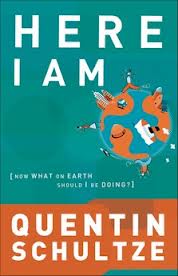 Here I Am: Now What on Earth Should I Be Doing? Quentin Schultze (Baker) $14.00 What a great little book, wise and helpful, about being stewards of the various gifts God gives us, in the various spheres he calls us to! Easy-to-read, this is one of the best, with reasonable theological foundations and lots of great illustrative stories and anecdotes Quent is a great storyteller—he is the head of the communications department at Calvin College in Michigan (and has a remarkable book on virtues needed for our electronic age and another which is the definitive book on communication and mass media from a Christian perspective) What a story this guy has, and how wonderfully he’s used his own scholarly vocation to help others with these basics. Highly recommended.
Here I Am: Now What on Earth Should I Be Doing? Quentin Schultze (Baker) $14.00 What a great little book, wise and helpful, about being stewards of the various gifts God gives us, in the various spheres he calls us to! Easy-to-read, this is one of the best, with reasonable theological foundations and lots of great illustrative stories and anecdotes Quent is a great storyteller—he is the head of the communications department at Calvin College in Michigan (and has a remarkable book on virtues needed for our electronic age and another which is the definitive book on communication and mass media from a Christian perspective) What a story this guy has, and how wonderfully he’s used his own scholarly vocation to help others with these basics. Highly recommended.
God at Work: Your Christian Vocation in all of Life Gene Vieth Jr (Crossway) $14.99 I like this a lot–and he brings a bit of a Lutheran flavor. You may know Vieth (he writes for World magazine) as a writer that teaches how Christ’s Lordship affects all of life. I like his insistence that we are not called to just one thing, but have various callings and offices — “masks” as Luther called them. Very clear, comprehensive.
Liberating Tradition: Women’s Identity and Vocation in Christian Perspective Kristina LaCelle-Peterson (Baker) $24.00 You will notice that a number of these books–on calling and vocation, and on work and careers—are by women authors. But few are precisely for and about the unique ways in which woman are called, and how the doctrines of vocation are experienced by contemporary women. This book is like none other, important, serious-minded but very clear, irenic, and helpful. As CEO of World Hope International Jo Anne Lyon writes “If one wants to read a single book to understand gender issues, this is it!” LaCelle-Peterson has a PhD from Drew University and teaches at Houghton College in NY. She is an elder in the Free Methodist Church.
Vocation: Discerning Our Callings in Life Douglas Schuurman (Eerdmans) $22.00 We don’t sell this too often as some aren’t interested in its slightly arcane theologically struggles—but for geeks like me (and thee?) who love this stuff, it is wonderfully interesting. He explores the differences between the Reformed framework of Lee Hardy who draws on creation order, grounding our human callings in creation, and an earlier work by Miroslov Volf (Work in the Spirit) who grounded his sense of vocation in the giftedness that comes from the Spirit. Young theological types wondering how to get at this whole topic? Check it out.
Callings: Twenty Centuries of Christian Wisdom on Vocation edited by William Placher (Eerdmans) $30.00 I might say this is one for those really wanting to dig deep: this is a remarkable, thorough, big collection of what great Christian thinkers have written down through the centuries, so it should be known by seminarians, leaders, pastors. It was edited by the late Bill Placher, a beloved professor and theologian from Wabash College. There is simply nothing like it in print, and we are in debt to Dr. Placher for showing, era by era, what the church has said about vocation. This is a good and important reader, but I wish there was a bit more comment or a critical apparatus with it to allow undiscerning readers to evaluate the insights of the various church history authors. Not everything said in every era was wise or helpful. Still, this is an amazing anthology, and, at nearly 470 pages, a great bargain.
The Way of Life Gary Badcock (Eerdmans) $16.00 This is a short study, calm and reasoned, about what we mean by calling and how God’s call is to us all, firstly to follow Christ–which necessarily moves us into a certain sort of way of life. No, we aren’t called just to a job, and, now, not everyone in the church agrees with the best way to get all this said. The author is a fine Barthian scholar, and this is a provocative, rich read.
Forgetting Ourselves on Purpose: Vocation and the Ethics of Ambition Brian J. Mahan (Jossey Bass) $15.95 Wow, what an evocative, beautifully-written, mature book. It isn’t overtly evangelical, but it is wise and good. Do you know it? The author is a college teacher and he tells moving stories about students and their sense of vocation, their desire to make a difference and have integrity, but also this pressure to be successful. I love the title, which captures the wise and eloquent style of the author and his vision.
A Sacred Voice is Calling: Personal Vocation and Social Conscience John Neafsey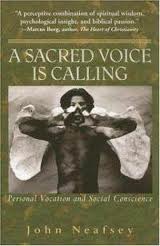 (Orbis) $22.00 All right, forgive me for pushing your envelope a bit here. This is liberation theology (at best) and is a bit odd theologically (we’re one with the universe, you know.) Still, there is something really right about this, about how our callings and vocations are discerned somewhat in light of the great needs of the world. How can we be transformed to care deeply about the injustices of our day, and how can we “hear” God’s call to work in ways and places that are touched by the griefs of this broken world? You may not appreciate all of the author’s theological baggage (or maybe you will) but, regardless, the heart of this book and its h
(Orbis) $22.00 All right, forgive me for pushing your envelope a bit here. This is liberation theology (at best) and is a bit odd theologically (we’re one with the universe, you know.) Still, there is something really right about this, about how our callings and vocations are discerned somewhat in light of the great needs of the world. How can we be transformed to care deeply about the injustices of our day, and how can we “hear” God’s call to work in ways and places that are touched by the griefs of this broken world? You may not appreciate all of the author’s theological baggage (or maybe you will) but, regardless, the heart of this book and its h
elpful invitation is vital. A moving Marcus Borg quote on the front.
A CHRISTIAN VIEW OF WORK
For All God’s Worth: True Worship and the Calling of the Church N.T. Wright (Eerdmans) $13.00 We recommend this often because of how it brings together two big themes—worship of God in liturgy and worship of God in work. That is, serving in worship in the sanctuary and serving in the world. The first half is about what one might consider traditional worship, and the second half is about worshiping in the world, daily living out the claims we make in our liturgy. So this is basic, inspiring, an ideal starting book.
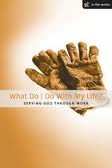 What Do I Do With My Life: Serving God Through Work Kenneth Baker (Faith Alive) $9.99 This is a small group resource that is excellent for small Bible study groups or adult Sunday school classes. There is a bit to read —five short readings for each day of the week (so each member will need one) but it is mostly designed for good conversations. It has helpful discussion questions, some activities, lots of Bible verses to consider exploring what the Scriptures say about the 9 to 5 and our other callings to work in various aspects of our lives. This is a very fine and solid overview of missional thinking and how our various labors matters to God—I don’t know of any resource like this for small groups. Thanks to the CRC publishing arm for doing such quality work. in this case for small groups.
What Do I Do With My Life: Serving God Through Work Kenneth Baker (Faith Alive) $9.99 This is a small group resource that is excellent for small Bible study groups or adult Sunday school classes. There is a bit to read —five short readings for each day of the week (so each member will need one) but it is mostly designed for good conversations. It has helpful discussion questions, some activities, lots of Bible verses to consider exploring what the Scriptures say about the 9 to 5 and our other callings to work in various aspects of our lives. This is a very fine and solid overview of missional thinking and how our various labors matters to God—I don’t know of any resource like this for small groups. Thanks to the CRC publishing arm for doing such quality work. in this case for small groups.
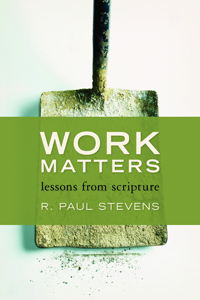 Work Matters: Lessons from Scripture R. Paul Stevens (Eerdmans) $16.00 Paul Stevens, long-standing professor at Regent College in B.C., has been one of the best voices and most steadfast allies in the effort to educate about the meaning and dignity of labor. He has encouraged this conversation for decades, and we’ve included several other books of his on this list.
Work Matters: Lessons from Scripture R. Paul Stevens (Eerdmans) $16.00 Paul Stevens, long-standing professor at Regent College in B.C., has been one of the best voices and most steadfast allies in the effort to educate about the meaning and dignity of labor. He has encouraged this conversation for decades, and we’ve included several other books of his on this list.
Stevens’ newest book is gleaned from hundreds of workshops, lectures, sermons, and classes where he has offered Biblical case studies of those who viewed their jobs as related to the unfolding work of God. In another person’s hands, studies about “jobs in the Bible” would seem superficial at best (and betray an unhelpful view of the Bible itself). By contrast, Stevens avoids forced or cheesy interpretations, but has the eyes to see remarkable insights in stories as familiar as Joseph in Pharaoh’s empire and Daniel exiled in Babylon, and as freshly interesting as Bezalel and Ezekiel and the “enigmatic” professor in the wisdom literature. He visits Ruth to teach about “survival work,” David to ponder “royal work,” and Martha to esteem “contemplative work.” I can hardly think of a better small group study or adult Christian education resource that combines insightful Scripture reflections and helpful application as we think about our work as integral to God’s mission in the modern world. Discussion questions are included. Highly recommended.
Work Matters: Connecting Sunday Worship to Monday Work Tom Nelson (Crossway) $15.99 A few friends of mine have had some opportunity to teach and consult with the folks at Tom Nelson’s church and it seems to be nearly one of the nation’s best centers of culturally-engaged, thoughtful nurture of the gifts and insights of laypeople and professionals for marketplace service. After years of reflecting on the Word as it is broken open in their midst and equally paying attention to the contexts of the various workers at the church, this brave pastor has learned to equip the people for relating faith and work, Sunday and Monday, prayer and public life. Reverend Nelson and his staff and congregants are really doing it, and their vision for why it all matters is nicely spelled out in a way you’ll surely appreciate. There are numerous two-page sidebars, too, documenting the stories of some of the folks in the church—a brilliant, Christ-honoring architect, an ethical businessperson, a good teacher, a Christian lawyer, and the like.
$15.99 A few friends of mine have had some opportunity to teach and consult with the folks at Tom Nelson’s church and it seems to be nearly one of the nation’s best centers of culturally-engaged, thoughtful nurture of the gifts and insights of laypeople and professionals for marketplace service. After years of reflecting on the Word as it is broken open in their midst and equally paying attention to the contexts of the various workers at the church, this brave pastor has learned to equip the people for relating faith and work, Sunday and Monday, prayer and public life. Reverend Nelson and his staff and congregants are really doing it, and their vision for why it all matters is nicely spelled out in a way you’ll surely appreciate. There are numerous two-page sidebars, too, documenting the stories of some of the folks in the church—a brilliant, Christ-honoring architect, an ethical businessperson, a good teacher, a Christian lawyer, and the like.
This is the best book I’ve seen in years on this topic. If this topic is somewhat new to you, please consider buying this (and, even better, buy one for your pastor.) If you are a fan and connoisseur of this topic and have read well in the field of relating faith and work, I can assure you that you will be pleased to own this, will be encouraged by it, and will find new insights and stories that will bolster your own journey and allow you to more clearly explain to others your passion for developing a Christian perspective on the work-world. Three cheers for a great, accessible, inspiring book! Here is a brief review I did of it in Comment magazine.
Your Work Matters to God Doug Sherman & William Hendricks (NavPress) $15.00. I have recommended this over and over for many years, and while it is a bit longer than it needs to be (there are a few extra chapters for younger folks about finding a job, finding a church, managing your money) it is very, very clear, and remarkably thorough. It is very strong in noting that work is not primarily for evangelism, that the work itself matters to God. It nicely contrasts a pagan, Greek worldview that disdained bodily work and the robust, gritty Hebrew views. It asks some questions about being agents of structural change, work-world reform. It is rare to see such vibrant, evangelical authors writing with such a broad view and such clear-headed counsel.
Mastering Monday: A Guide to Integrating Faith and Work John Beckett (IVP) $18.00 The story behind this book is fantastic; apparently a national news show (20/20 perhaps) did a feature on business ethics, and Mr. Beckett was featured, sharing about his faith-based work in the heating oil industry. No fancy corporate exec, not a college professor, this is a rough and ready small business owner from Ohio. The viewer feedback was overwhelming, convincing the producers to come back and do a show just on him. The book came out of that experience, with Beckett—who ends ups being an excellent teacher and good writer—offering solid Biblical and practical introductory advice. Very nice.
Work & Leisure in The Life of a Christian (Burlington Reformed Study Centre) $7.95 This slim little volume includes fabulous but brief essays by the extraordinary Gideon Strauss (at the time,of the Christian Labour Association of Canada and the brilliant and innovative Work Research Foundation) and his good colleague, the amazingly thoughtful Ray Penning. Then these guys are treated to a robust feedback/response panel—these are talks from some conference or retreat and bear that tone. The transcribed dialogue portions, too, are very interesting—don’t skip them! These conversations are useful as they offer wise, foundational thinking about the meaning of work, the curse, the implications of a redemptively Christian worldview, and not just for work, but also for rest and leisure.
I would suggest that no one in North America has done as solid and sustained thinking on these things over recent decades as the CLAC and it is a delight to announce this rare little book. Packed with work-world insight from the revival of Dutch neo-Calvinism that has always affirmed the layperson’s calling into the sphere of labor.
Good W
ork: Christian Ethics in the Workplace Esther D. Reed (Baylor University Press) $24.95 This is a meaty little book, “needed and most welcome” according to Gilbert Meilaender. It is engaging, interesting, and solid, but it moves in important fresh directions, touching down on matters of vocation and liturgy, social justice, human rights, the integrity of creation and our role as stewards. Reed is a theological prof in the UK at the University of Exeter, has been a part of the Center for Theological Inquiry at Princeton, is published by a serious Baptist house, and, interestingly, as David Gushee writes in his good review, “includes a striking focus on Eastern Orthodoxy’s traditions and insights.” A very helpful contribution.
How Then Shall We Work? Rediscovering the Biblical Doctrine of Work Hugh Whelchel (Westbow) $13.95 Just when you thought there wasn’t much more to be said about the general overview of a Biblical view, Whelchel adds some new ideas, really good Scriptural material, lots of clarity and solid passion about the role of jobs in God’s redemptive work as His history unfolds from a garden to a city. A great endorsement by Steve Brown of Key Life Ministries raves about it. The author is a former businessman, now a leader of a conservative think-tank in Washington DC.
Christians at Work: Not Business as Usual Jan Wood (Herald Press) $10.99 As we scan our bookshelves here at the shop, and this big list, I realize that some may seem a bit redundant. Not this one! The author is a fine writer, clear and interesting. She is a Friend (Quaker) and her vision is informed by this deeply spiritual and socially prophetic tradition. That the Mennonites published this makes obvious sense, and we are grateful for Wood’s overtly Christ-centered approach, her deeply Biblical orientation, and her practical, down-to-earth concerns. Can, as Wally Kroeker, editor of The Marketplace journal, asks, “the love of God transform the life in the office, board room, factory floor?” She she’s our daily work as sacred and she knows that we must be salt and leaven. Very nicely done.
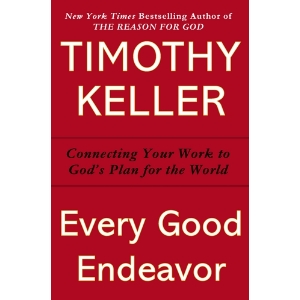 Every Good Endeavor: Connecting Your Work to God’s Plan for the World Timothy Keller (Dutton) $26.95 NOT YET RELEASED, DUE NOVEMBER 2012. I hope you know about the Redeemer Presbyterian Center for Faith and Work, one of the premier ministries offering encouragement to professionals in several spheres of service. This book emerges from Kellers good concern for the laypeople in his Manhattan church and his strong realizations that we are all called to serve in various institutions across all of culture as agents of God’s Kingdom. You can pre-order it now by just typing it into our order form page. We will have it on sale for at least 20% off. I am confident it will be excellent.
Every Good Endeavor: Connecting Your Work to God’s Plan for the World Timothy Keller (Dutton) $26.95 NOT YET RELEASED, DUE NOVEMBER 2012. I hope you know about the Redeemer Presbyterian Center for Faith and Work, one of the premier ministries offering encouragement to professionals in several spheres of service. This book emerges from Kellers good concern for the laypeople in his Manhattan church and his strong realizations that we are all called to serve in various institutions across all of culture as agents of God’s Kingdom. You can pre-order it now by just typing it into our order form page. We will have it on sale for at least 20% off. I am confident it will be excellent.
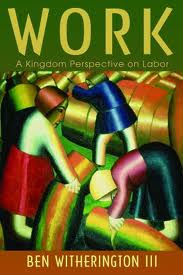 Work: A Kingdom Perspective on Labor Ben Witherington (Eerdmans) $18.00 This is pretty short but don’t be deceived by its simple size and shape. Ben Witherington is one of the finest New Testament scholars on the planet (he teaches at the United Methodist seminary, Asbury) and has a profound awareness of the teachings about the Kingdom of God deep in his bones. As he writes about work one can sense his great vision, his good concerns, his practical, Biblical insight, especially as he unpacks some of the parables of Jesus to help us get a Kingdom vision of our jobs and labor. This helpfully breaks down the pagan sacred-secular divide and calls us all to a robust way of life where discipleship colors all we do, even our daily 9-to-5 labor. Very, very good and its Biblical teaching makes it ideal for adult Sunday school classes or to inspire a sermon series on work.
Work: A Kingdom Perspective on Labor Ben Witherington (Eerdmans) $18.00 This is pretty short but don’t be deceived by its simple size and shape. Ben Witherington is one of the finest New Testament scholars on the planet (he teaches at the United Methodist seminary, Asbury) and has a profound awareness of the teachings about the Kingdom of God deep in his bones. As he writes about work one can sense his great vision, his good concerns, his practical, Biblical insight, especially as he unpacks some of the parables of Jesus to help us get a Kingdom vision of our jobs and labor. This helpfully breaks down the pagan sacred-secular divide and calls us all to a robust way of life where discipleship colors all we do, even our daily 9-to-5 labor. Very, very good and its Biblical teaching makes it ideal for adult Sunday school classes or to inspire a sermon series on work.
The Heavenly Good of Earthly Work Darrell Cosden (Hendrickson) $18.00 First published in England by Paternoster, this stellar study explores whether a person’s day to day work has any ultimate, lasting value from the perspective of Eternity. This really does ask the basic questions, and has garnered excellent recommendations from important folks, such as J. Richard Middleton (who is working on a book about the relationship between this age and the next) and David Smith, who teaches missiology, who says it is “cutting-edge theology of the highest order.”
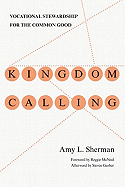 Kingdom Calling: Vocational Stewardship for the Common Good by Amy Sherman (IVP) $16.00 We have celebrated this excellent book on several occasions, thinking it to be one of the very best books in years on this topic. Truly, this is masterful and adds excellent new insight, new layers of meaning, and teaches in great and helpful detail about four ways of relating faith and work. See our comments here and here. Kingdom Calling is a serious, thorough, study of how our jobs can become avenues of social change honoring God and loving neighbor as we steward our vocations for the sake of the common good. Not for beginners, but if you’ve read a book or two on calling and on work, this is simply a must-have, must-read.
Kingdom Calling: Vocational Stewardship for the Common Good by Amy Sherman (IVP) $16.00 We have celebrated this excellent book on several occasions, thinking it to be one of the very best books in years on this topic. Truly, this is masterful and adds excellent new insight, new layers of meaning, and teaches in great and helpful detail about four ways of relating faith and work. See our comments here and here. Kingdom Calling is a serious, thorough, study of how our jobs can become avenues of social change honoring God and loving neighbor as we steward our vocations for the sake of the common good. Not for beginners, but if you’ve read a book or two on calling and on work, this is simply a must-have, must-read.
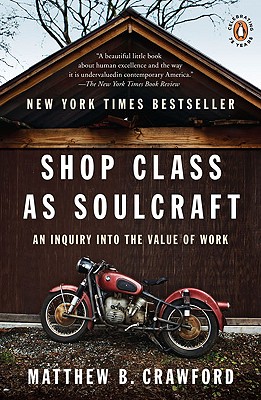 Shop Class as Soulcraft: An Inquiry into the Value of Work Matthew Crawford (Penguin) $15.00 I hope you recall how we touted this when it first came out, and the buzz it gathered (including a “notable book” of the year award from the New York Time Book Review.) This is beautiful, thoughtful, rousing—Crawford was a white-collar scholar at a think-tank who hated his job, and felt the disconnect between what he was doing and who he was becoming untenable. He quit, opened a motorcycle repair shop, and offers here this extended meditation on shop classes, liberal arts, unhelpful education, working with one’s hands, and finding fulfillment in blue collar jobs. How many philosopher/mechanic’s do you know? This is entertaining and profound, hoping to restore greater honor to the manual trades.
Shop Class as Soulcraft: An Inquiry into the Value of Work Matthew Crawford (Penguin) $15.00 I hope you recall how we touted this when it first came out, and the buzz it gathered (including a “notable book” of the year award from the New York Time Book Review.) This is beautiful, thoughtful, rousing—Crawford was a white-collar scholar at a think-tank who hated his job, and felt the disconnect between what he was doing and who he was becoming untenable. He quit, opened a motorcycle repair shop, and offers here this extended meditation on shop classes, liberal arts, unhelpful education, working with one’s hands, and finding fulfillment in blue collar jobs. How many philosopher/mechanic’s do you know? This is entertaining and profound, hoping to restore greater honor to the manual trades.
The Pleasures and Sorrows of Work Alain de Botton (Vintage) $15.95 De Botton is beloved by those who like his high-brow reporting, journalism-meets-philosophy-meets cultural criticism. His book about place, The Architecture of Happiness, is an all time great. You may know his book on Proust. These essays are similar, inviting us to deeply ponder the “delight and despair” in our daily working lives.
Working: Its Meaning and Its Limits Gilbert Meilaender (University of Notre Dame Press) $18.00 This is another really, really great anthology with excerpts of great literature, poetry, Bible passages, parts of novels and essays. each offering engaging insights about the nature of work.. Very thoughtful stuff. Meilaender has written much on ethics and other themes, and has his own extended mediation and collection of essays, some of which are on vocation and calling, in The Freedom of a Christian: The Grace, Vocation, and Meaning of Our Humanity (Brazos.)
The Other Six Days: Vocation
, Work and Ministry R. Paul Stevens (Eerdmans) $27.00 Anyone who has followed this conversation about work-world ministry, about nurturing a Christian view of labor, of finding a sense of calling in one’s daily grind, knows the name of Stevens. He teaches Marketplace Theology at Regent College in Vancouver and knows more than just about anybody on the spirituality of the ordinary and the mission of the laity in the world. Here he offers a serious anthology of some of his best essays, solid teaching, good thinking, profound and important writing. Excellent.
Working Darby Kathleen Ray (Fortress) $15.00 This is in a series of books called Compass: Christian Exploration of Daily Living which is a very interesting set of short but meaty books, all with fairly creative theological reflection, offering mainline Christians ways to think about the experience of faithfulness in daily life. From clothing to shopping, eating to playing, this is a very interesting series. Glad they did one on working. Ms Ray brings her liberationist voice and offers, in concise and provocative ways, excellent contributions to ponder.
All Labor Has Dignity Martin Luther King, Jr, edited by Michael K. Honey (Beacon Press)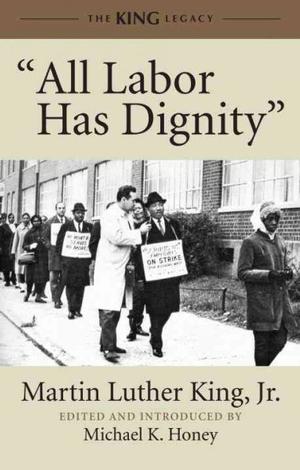 $26.95 It is worth recalling that King lost his life while organizing garbage collectors. He often spoke of the dignity of all work, the need to serve God with the work of one’s hand, to strive for excellence and integrity in any job. And, of course, he spoke out against injustices in our economic system, advocated for worker’s rights. This is an amazing collection of his writings and speeches–most never published before!—on this topic.
$26.95 It is worth recalling that King lost his life while organizing garbage collectors. He often spoke of the dignity of all work, the need to serve God with the work of one’s hand, to strive for excellence and integrity in any job. And, of course, he spoke out against injustices in our economic system, advocated for worker’s rights. This is an amazing collection of his writings and speeches–most never published before!—on this topic.

Blue Collar Jesus: How Christianity Supports Worker’s Rights Darren Cushman Wood (Seven Locks Press) $14.95 You’re not going to find this just anywhere, either, and it is an important and moving call for workplace justice and concern for the underpaid and underemployed. The author is an esteemed United Methodist pastor and theologian and professor of labor studies.
Business as a Calling: Work and the Examined Life Michael Novak (Free Press) $25.95 For the thoughtful executive, or deeper reader of business literature, this may be the best of its kind. It is eloquent, serious, profound. Magnificently thoughtful by an astute, conservative Catholic.
MOVING A BIT MORE PRACTICALLY
God at Work: The History and the Promise of the Faith at Work Movement David W. Miller (Oxford University Press) $29.99 This is the definitive study of the faith-at-work-movement, a fascinating and fabulous overview of who is doing what, and why, how many Christians have been organizing around this topic and working to get it more known. Excellent survey of various models, how different groups define terms, and the key theological themes guiding those who have been pioneers in the field. Very useful, although much has happened in the last few years since it was released.
How the Church Fails Businesspeople (And What Can Be Done About It) John C. Knapp (Eerdmans) $15.00. I mention this as practical mostly because it could be very practical for pastors or church leaders. This is a very important recent book, and I think may be more important in the long run than a dozen of the big name popular books calling us to high-energy, mega-church, big-time visions of making a difference. It is written by a person who has worked in the business world, and is also a theologian, helping the church bridge the divide, so to speak, between worship and work, between church and world. It isn’t bitter or strident, but it does show how serious corporate types often say they don’t get much help for their important work for the teaching at their church. Here is a nice youtube clip of the author explaining about the book and the authors findings of how the ethos of many congregations seems indifferent to the public lives of most members.
The 9 to 5 Window: How Faith Can Transform the Workplace Os Hillman (Regal) $19.99 This book may not be as sharp or as sophisticated as some, but it is energetic and passionate for what God can do as people serve Christ at the job site. The cover art is nearly worth the price of the book—what a treat to see a stethoscope, wooden spoon, fountain pen, adjustable wrench and paintbrush all lined up, clean as a whistle. This book has a strong and specifically charismatic bent, with some stuff on spiritual warfare, miracles and Godly impact on entire cities through spiritual transformation of institutions of commerce.
Joy at Work: A Revolutionary Approach to Fun on the Job Dennis Bakke (PVG) $24.95 It isn’t every book that bears an endorsing blurb by Jack Kemp, Peter Block, and Bill Clinton. Bakke presented some of this unique material at the Pittsburgh Jubilee conference a few years back and folks loved it; he is renowned as an innovative Christian leader in international energy work and hugely important in philanthropy. His brother, Ray, you may know for his considerable work and writing in urban ministry. This is an innovative and exciting book which, while profoundly meaningful, doesn’t come across like a Biblically-oriented “Christian” book. Use it in your workplace! Have fun. We have the big study guide, too.
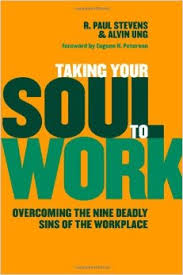 Taking Your Soul to Work: Overcoming the Nine Deadly Sins of the Workplace R. Paul Stevens & Alvin Ung with a foreword by Eugene Peterson (Eerdmans) $14.99 If there was a “lifetime achievement award” in the field of Christian marketplace ministry, daily discipleship for ordinary folks, for “seven days a week faith” (as one of his many books puts it) Paul Stevens would be just such an honoree. He has given his life to thinking hard and writing well about the interface of faith and the work-world, and, especially, Christians in the business environment. He is professor emeritus of marketplace theology and spirituality at Regent College in Vancouver, perhaps the finest place to study this topic. (You can see a bit about his books here.) As we’ve suggested above, anything he writes is commendable, serious, important.
Taking Your Soul to Work: Overcoming the Nine Deadly Sins of the Workplace R. Paul Stevens & Alvin Ung with a foreword by Eugene Peterson (Eerdmans) $14.99 If there was a “lifetime achievement award” in the field of Christian marketplace ministry, daily discipleship for ordinary folks, for “seven days a week faith” (as one of his many books puts it) Paul Stevens would be just such an honoree. He has given his life to thinking hard and writing well about the interface of faith and the work-world, and, especially, Christians in the business environment. He is professor emeritus of marketplace theology and spirituality at Regent College in Vancouver, perhaps the finest place to study this topic. (You can see a bit about his books here.) As we’ve suggested above, anything he writes is commendable, serious, important.
This is a recent one, and his writing partner, Alvin Ung, is himself a breakthrough leader who has lived in the high- powered business world of Southern Asia (he is a Fellow at Ghazanah Nasional, the national investment agency of Malaysia.)
As you can see from the sub-title, these conversational chapters—each rounded out with an action plan or case study—explore in simple, but important ways, the ways to avoid the “soul-sapping struggles of the work world. They look at the “nine deadly sins” of the workplace, the nine-fold fruit of the Spirit that can meet our workplace needs, and nine positive outcomes of integrating spirituality and work. Friends, this is good news, indeed. Serious, uplifting, honest, and very, very insightful. Few books in this field are as deeply spiritual, theologically informed, and yet nicely practical.
In, But Not Of: A Guide to Christian Ambition and the Desire to Influence the World Hugh Hewitt (Nelson) $15.99 I like this handsome new paperback edition of a classic that has helped many young people, especially, navigate the concerns about ambition, where to
seek employment, how to make a difference. A good study guide in the back for ambitious young professionals, especially.
Work, Love, Pray: Practical Wisdom for Young Professional Christian Women Diane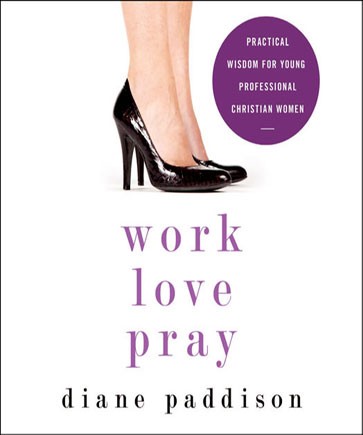 Paddison (Zondervan) $14.99 People who we trust say that this is truly helpful; several sharp young women who care about their own unique struggles studied it over and concluded it was worth purchasing. Everybody wonders if the shoes on the cover work. The allusion to Eat Pray Love in the title, isn’t developed at all in the book; it would have been a hoot if she had. The author is a top-shelf executive, does important work in the corporate world and brings both Biblical vision and practical advise for women in the work-world. It is pretty interesting to see how she was able to raise her children and hold down a demanding job, and how she maintained a solid and inspiring faith through it all. It may be a cliche to say she understands how to juggle career and family and how she and her husband navigated their otherwise conservative, two-career marriage. Early reviews have been passionately favorable—“buy this book for your granddaughters” one grandma writes. Another said it was the first book she ever read that understood the tensions of her own life. And ya know what? Not surprisingly, several folks at a recent conference said that it would be very helpful for husbands of career women, too.
Paddison (Zondervan) $14.99 People who we trust say that this is truly helpful; several sharp young women who care about their own unique struggles studied it over and concluded it was worth purchasing. Everybody wonders if the shoes on the cover work. The allusion to Eat Pray Love in the title, isn’t developed at all in the book; it would have been a hoot if she had. The author is a top-shelf executive, does important work in the corporate world and brings both Biblical vision and practical advise for women in the work-world. It is pretty interesting to see how she was able to raise her children and hold down a demanding job, and how she maintained a solid and inspiring faith through it all. It may be a cliche to say she understands how to juggle career and family and how she and her husband navigated their otherwise conservative, two-career marriage. Early reviews have been passionately favorable—“buy this book for your granddaughters” one grandma writes. Another said it was the first book she ever read that understood the tensions of her own life. And ya know what? Not surprisingly, several folks at a recent conference said that it would be very helpful for husbands of career women, too.
Workplace Grace: Becoming a Spiritual Influence at Work Bill Peel & Walt Larimore (Zondervan) $16.99 I think it should be clear that God cares about work, that we must attend to imagining what we do through God’s eyes, as ways to serve our neighbors, as a legitimate calling in and of itself. However, surely we would like to, when appropriate, share the good news of God’s grace with others as we can. We needn’t be as weird and stubborn as the dedicated young man in the must-see The Big Kahuna (Danny DiVito, Kevin ) but we should, at some point, consider ways to appropriately and effectively do gentle evangelism with our colleagues at work. This book is a helpful step, written by an evangelistic trainer and a medical doctor, who brings some real-world insights from his own job site. There is a well-made, six-session DVD curriculum too that might be useful for you or your group (Zondervan; $19.99) The book was previously titled Going Public With Your Faith.
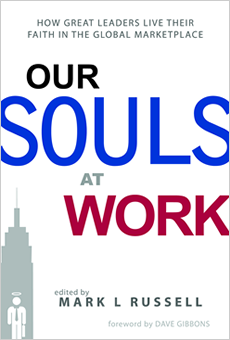 Our Souls at Work: How Great Leaders Live Their Faith in the Global Marketplace edited by Mark Russell (Russell Media) $19.95 This is a vibrant, colorful, book, handsomely designed with some contemporary, graphic pizazz and exciting testimonials and clear-headed insight to match. One of the best new books in this whole “marketplace ministry” field, it is essentially a gathering of short pieces by a variety of business leaders, arranged by topic, most quite practical. So you’ll hear a handful of businessmen or women talking about balance, or integrity, or leadership, or character. There is a section on calling, a section on handling money, a section of stories on relationships. There is one called “pluralism” which is very strong (and still a vexing matter to some, how to respect and honor the diversity of views in the modern workplace.) There is a section on sharing one’s faith, and a section of important lessons about ethics. The section on giving could inspire young philanthropists and remind us about giving back, as they say.
Our Souls at Work: How Great Leaders Live Their Faith in the Global Marketplace edited by Mark Russell (Russell Media) $19.95 This is a vibrant, colorful, book, handsomely designed with some contemporary, graphic pizazz and exciting testimonials and clear-headed insight to match. One of the best new books in this whole “marketplace ministry” field, it is essentially a gathering of short pieces by a variety of business leaders, arranged by topic, most quite practical. So you’ll hear a handful of businessmen or women talking about balance, or integrity, or leadership, or character. There is a section on calling, a section on handling money, a section of stories on relationships. There is one called “pluralism” which is very strong (and still a vexing matter to some, how to respect and honor the diversity of views in the modern workplace.) There is a section on sharing one’s faith, and a section of important lessons about ethics. The section on giving could inspire young philanthropists and remind us about giving back, as they say.
There are a few business leaders here you may have heard of, but most contributors, though, are not particularly famous in the religious book world. This should be seen as an asset; these are folks who are the real deal, businesspeople who spend their days in the trenches of global capitalism. It gives it a very practical, feel, showing that transformed Christian living in the business world is not only interesting, but do-able.
Sequencing: Deciphering Your Company’s DNA Mike Metzger (Game Changer Books) $17.95 I’ve written about this interesting “game changer” book before and almost every week or so find myself re-tweeting Mike’s fascinating and learned Doggie Head Tilt web column. This is a complicated book to explain, but I can say two simple things: it is cool and it is crafty. Firstly, it is stunning to read and enjoy, with large graphics and interesting black and white photos offered in a arresting, eye-catching design. Secondly, besides the look and pithy quotes, this is a book that will help you explain profoundly Biblical principles without any religious jargon. Almost none. Mike doesn’t want to compromise his evangelical faith but he also knows that long-term cultural renewal of the sort we so desperately need will have to bubble up from institutions and organizations—like businesses—who rethink their purpose and retool their internal DNA.
This book helps explain what is often called the four-chapter gospel story (creation-fall-redemption-restoration), or what N.T. Wright calls the five act model of the Biblical drama, in ways that are creative and based in our shared experiences, using common language of the workplace, not theological lingo. Jesus said to be harmless as doves but crafty as snakes. Metzger is one of the best I’ve ever seen at this important virtue. Consequently, this is a Christian business book that might actually be read by a non-Christian executive or nonprofit leader. It can help you unlock the culture of your organization, and how to determine if your company will be able to be innovative, or renewing, over the long haul, interestingly, by using phrases he proposes that are rooted in the Biblical story. Mike also makes an appearance as one of the session leaders in the Q Ideas curriculum DVDs, the one called The Kingdom Way of Life.
Faith Dilemmas for Marketplace Christians Ben Sprunger, Carol Suter, & Wally Kroeker (Herald Press) $7.99 A small book of case studies, inviting conversation, or for your own pondering. You are not alone in having vexing matters, day by day. Helpful. A good forward from the Director of the Mennonite Economic Development Association.
DISCERNING VOCATION AND CALL
Courage and Calling: Embracing Your God Given Potential (revised and expanded) Gordon T. Smith (IVP) $17.00 This is a tad dense at times, but nonetheless truly remarkable — it is really, really good and this author is a deep and generative thinker. (His other books bring an evangelical eye to medieval spirituality and invites mature thinking about contemplative spiritual formation.) Here he combines two important themes: a profound and helpful understanding of vocation/calling and mature guidance about discerning God’s will for one’s life. I like his bit about decision-making and discernment, the way he on occasion indicates that he has vast insight into Ignatian spirituality (not bad for a CM&A pastor.) Highly recommended for those wanting a solid foundational study which at least begins to point towards practical assistance in figuring out how to discern one’s calling.
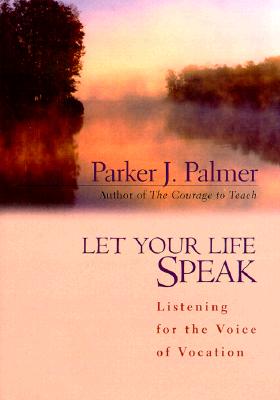 Let Your Life Speak: Listening for the Voice of Vocation Parker Palmer (Jossey Bass) $18.95 This is short and contemplative, written by a passionate, sweet Quaker with huge concerns about inner integrity and public justice. He’s all about finding that place where you can best serve by being reflective and intentional about one’s own heart’s truths. Yeah, he’s a bit touchy feely for some, but it is honestly written, elegant in a subdued manner, caring, and full of gentle passion. Very impressive for such a short rumination. A lot of people love this, making it one of the biggest sellers in this topic. Is it wrong to say “to thy own self be true?” Or, as Beuchner has, “listen to your life?” Lovely.
Let Your Life Speak: Listening for the Voice of Vocation Parker Palmer (Jossey Bass) $18.95 This is short and contemplative, written by a passionate, sweet Quaker with huge concerns about inner integrity and public justice. He’s all about finding that place where you can best serve by being reflective and intentional about one’s own heart’s truths. Yeah, he’s a bit touchy feely for some, but it is honestly written, elegant in a subdued manner, caring, and full of gentle passion. Very impressive for such a short rumination. A lot of people love this, making it one of the biggest sellers in this topic. Is it wrong to say “to thy own self be true?” Or, as Beuchner has, “listen to your life?” Lovely.
The Echo Within: Finding Your True Calling Robert Benson (Waterbrook) $13.99 I just love this book, elegant and thoughtful, wherein this fine guy (who is now an Episcopalian spiritual writer) tells of his work in his father’s famous gospel music biz in Nashville. He just couldn’t live with himself following his dad’s and grandfather’s shadow into this great position, and had to follow “the echo within” to hear what God was telling him to do. Which meant taking some risks, being honest about his desires, and finding ways to be a writer.) He has some very good theological insights, but it is still a short memoiristic reflection on his journey to decide how to follow his own sense of calling into a vocation unlike what his family had expected. Especially good for anyone sensing a desire to be a writer or artist. Very, very nice.
The Messy Quest for Meaning: Five Catholic Practices for Finding Your Vocation 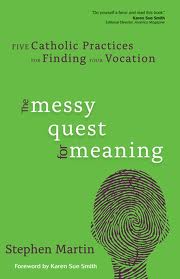 Stephen Martin (Sorin Books) $14.95 The first section of this wonderfully written, recent book is nearly a memoir as Martin tells of his growing dis-ease at his journalistic job, his struggle to understand his ill-health and anxiety, his religious confusion, and his mental state–worrying about death, almost unable to finish even a simple task.
Stephen Martin (Sorin Books) $14.95 The first section of this wonderfully written, recent book is nearly a memoir as Martin tells of his growing dis-ease at his journalistic job, his struggle to understand his ill-health and anxiety, his religious confusion, and his mental state–worrying about death, almost unable to finish even a simple task.
Interwoven within this narrative, though, is another story, and it becomes the heart of the book. Martin was raised in a serious Catholic family, and has an uncle who is a priest. A conversation about calling, vocation, purpose, “the distribution of talents,” and such soon put him on a quest: how do monks come to learn that they are called to their particular vocation? Might insight from that process–monastic insights about desires and vocations, the will of God and the grace to pursue our callings–help him in his own struggle to make sense of life and to find his purpose and place and career?
Well, indeed it did, and he lived to tell about it. The Messy Question is not a career-guidance handbook, but something more profound, more foundational. Early on, in high school and college, Martin dabbles with existentialism and other faddish philosophies, but through a particularly scholarly mentor at Duke University, he returns to his childhood faith; the book therefore draws overtly on Catholic teaching. Yet, non-Catholics (perhaps especially non-Catholics) might find that this moving story and the process he chronicles resonates with them. Drawing on hefty chunks of his own life, as well as inspirational anecdotes from his own acquaintances–from basketball star Danny Hurley to literary star Reynolds Price to movie star Martin Sheen–he highlights the stages of discerning and living into a clear sense of calling.
Merely listing those stages does not do justice to his storied and nuanced telling of them, but here they are, with the aim explored in each phase: Desires (Digging for What You Really Want), Focus (Channeling Your Passions), Humility (Embracing What You Don’t Know), Community (Getting Outside Yourself), and The Margins (Probing Your Potential), followed by the concluding chapter–“Holy Ambition: Sustaining What You Start.” In each chapter, he tells of his life and his discovering of various Catholic mystics and activists, and shows how seekers can integrate the wisdom of the saints into their own journeys of faith. Wonderful!
By the way, Steve grew up in Dallastown, and more than one public school teachers get a shout out. He’s a good guy. Catholic or Protestant (or neither) you should buy this book, not just to support a local boy, but because it is a tremendous read, interesting and helpful.
What Am I Supposed to Do With My Life: Asking the Right Questions Douglas Brouwer (Eerdmans) $14.00 This Presbyterian pastor has guided many into these deeper questions, stuff about identity and values, achieving vocational integrity, determining vocation and/or career goals. Very nicely written, nuanced and wise. More about meaning and purpose and calling than details about the job market, but it is nonetheless the sort of profound rumination that ends up offering very helpful guidance. Calm, thoughtful, and I think quite reliable.
Getting a Life: How to Find Your True Vocation Renee M. LaReau (Orbis) $15.00 This young Catholic woman is a wonderful writer, clear and creative, interesting and challenging. She offers important insights about steps and stages. She is a facilitator for the renowned Notre Dame Vocation Initiative, a program that offers weekend retreats for young adults in exploring their vocation. U.S. Catholic magazine raves, saying it is for seekers of any age, needing help in figuring out “life’s big questions about career, relationships, and self.” Nice.
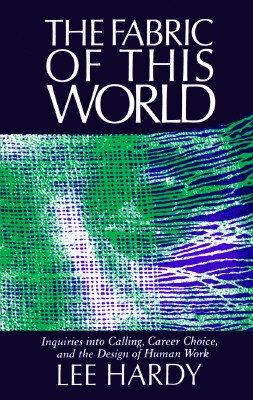 The Fabric of This World: Inquiries into Calling, Career Choice, and the Design of Human Work Lee Hardy (Eerdmans) $20.00 If the previous few are a strong because they are anecdotal, testifying to God’s own tender leading in the lives of their authors, useful for those wanting gentle guidance, this is strong because it is painstakingly clear about his solid, Reformed worldview and the distinctives of a Biblical view of work. This, actually, was one of the early, really good books, written in the late 70s that we promoted then; a recent look through reminded me how good it is, how thoughtful, how nicely rooted in what some call a Kuyperian or reformational vision. It does have a bit about the corporate world, so is especially good for those entering that milieu. His insights on management (and his critique of classic management philosophies that are not congenial to Christian convictions about calling) are foundational and very important. Dr. Hardy teaches philosophy at Calvin College in Grand Rapids.
The Fabric of This World: Inquiries into Calling, Career Choice, and the Design of Human Work Lee Hardy (Eerdmans) $20.00 If the previous few are a strong because they are anecdotal, testifying to God’s own tender leading in the lives of their authors, useful for those wanting gentle guidance, this is strong because it is painstakingly clear about his solid, Reformed worldview and the distinctives of a Biblical view of work. This, actually, was one of the early, really good books, written in the late 70s that we promoted then; a recent look through reminded me how good it is, how thoughtful, how nicely rooted in what some call a Kuyperian or reformational vision. It does have a bit about the corporate world, so is especially good for those entering that milieu. His insights on management (and his critique of classic management philosophies that are not congenial to Christian convictions about calling) are foundational and very important. Dr. Hardy teaches philosophy at Calvin College in Grand Rapids.
SHAPE: Finding & Fulfilling Your Unique Purpose for Life Erik Rees (Zondervan) $14.99 The foreword from Rick Warren gives a hint: this is the very interesting and useful resource developed at Saddleback, helping each person discover their spiritual gifts, heart, abilities, personality, and experiences. Filled with Scripture, real-life stories, and a strong workbooky inventory for your own self assessment. Thrilling!
Made to Count: Discovering What to do with Your Life Bob Reccord & Randy Singer (Nelson) $13.99 I love Randy Singer—lawyer, novelist, mentor— and with his upbeat pal they have here developed a very useful guide to evaluating your strengths, discerning your passions, and realizing that God wants you to make a difference in ways consiste
nt with how you are meant to be. There is a great, free, online personality profile and spiritual gifts analysis included with every purchase of the book. Interestingly, a strength of this book is in naming our greatest fears and working with that in pretty interesting ways. Inspiring.
Live Your Calling: A Practical Guide to Finding and Fulfilling Your Mission in Life Kevin & Kay Marie Brennfleck (Josssey-Bass) $16.95 There are many books like this. Practical, workbook, offering step-by-step guidance for self reflection, goal-setting, living into one’s sense of call. This one is truly one of the bests, with endorsements from all kinds of faith-based groups, colleges, churches, career centers.
The tools and principles in this book can help young adults get their bearings and conquer obstacles.
Rebecca Horst, director, CALL Project, Goshen College.
This book offers help for the reader to form a Life Calling Map that can guide them into a greater sense of significance for their lives. I commend it for its practicality, strong theological rootedness, and its psychological soundness.
Dr. Archibald D. Hart, senior professor of psychology and dean Graduate School of Psychology, Fuller Theological Seminary
This remarkable book will enable every follower of Christ to recognize and respond to God’s calling on his or her life. I commend it heartily and unreservedly.
Dr. Ted W. Engstrom, president emeritus, World Vision
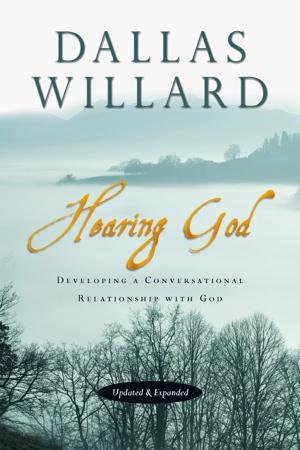 Hearing God: Developing a Conversational Relationship with God expanded and revised Dallas Willard (IVP) $16.00 I suppose I should end on a note like the one above, directly about calling and career, vocational choices and practical tools for assessing one’s life. But I’d like to end here, a basic, solid, mature, and thoughtful guide for any and all of us. Do we all not want to learn how to hear God’s voice? Can we align ourselves with the promptings of the Spirit? Do these wise and practical spiritual disciplines form us in ways that allow us to take up our discipleship callings into all of life? Of the many books exploring what we mean by “God’s will” and the practices of determining our life direction, this is simply the best.. A must-read, in my view.
Hearing God: Developing a Conversational Relationship with God expanded and revised Dallas Willard (IVP) $16.00 I suppose I should end on a note like the one above, directly about calling and career, vocational choices and practical tools for assessing one’s life. But I’d like to end here, a basic, solid, mature, and thoughtful guide for any and all of us. Do we all not want to learn how to hear God’s voice? Can we align ourselves with the promptings of the Spirit? Do these wise and practical spiritual disciplines form us in ways that allow us to take up our discipleship callings into all of life? Of the many books exploring what we mean by “God’s will” and the practices of determining our life direction, this is simply the best.. A must-read, in my view.
When the expanded edition came out in 2012 InterVarsity Press also released a useful six week DVD video curriculum which we recommend. It, too, is called Hearing God ($30.00.) Maybe study of this spiritual practice might be helpful for your group to precede more detailed study of vocation and call. Or perhaps it could follow a study of calling. Excellently produced.
BookNotes
SPECIALDISCOUNTany book mentioned
2O% off
order heretakes you to the secure Hearts & Minds order form pagejust tell us what you want
inquire here
if you have questions or need more information
just ask us what you want to know
Hearts & Minds 234 East Main Street Dallastown, PA 17313
 Perhaps you have heard of Scott Morris,
Perhaps you have heard of Scott Morris,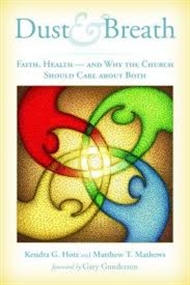 & Breath: Faith, Health — and Why the Church Should Care About Both is written by Kendra Hotz, Matthew Mathews, and Gary Guderson (Eerdmans; $14.00.) This great new book makes a very, very
& Breath: Faith, Health — and Why the Church Should Care About Both is written by Kendra Hotz, Matthew Mathews, and Gary Guderson (Eerdmans; $14.00.) This great new book makes a very, very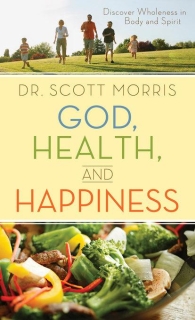 od, Health, and Happiness: Discover Wholeness in Body and Spirit Scott Morris (Barbour
od, Health, and Happiness: Discover Wholeness in Body and Spirit Scott Morris (Barbour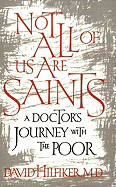
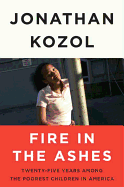 Jonathan Kozol’s new Fire in the Ashes: Twenty-five Years Among the Poorest Children in America [Crown; $27.00] for how
Jonathan Kozol’s new Fire in the Ashes: Twenty-five Years Among the Poorest Children in America [Crown; $27.00] for how
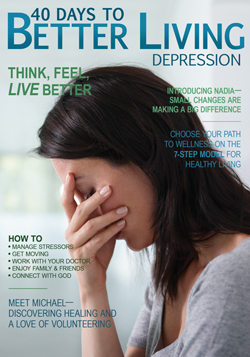

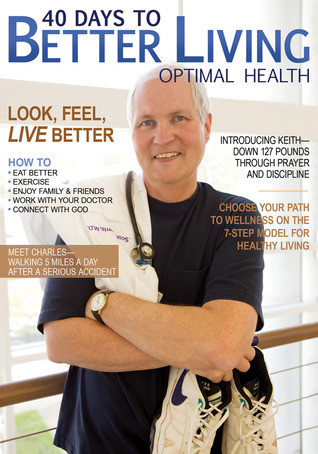

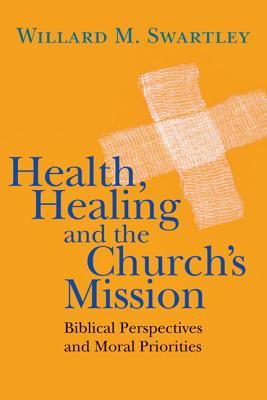 s Willard Swartley (IVP) $24.00 We reviewed this a month
s Willard Swartley (IVP) $24.00 We reviewed this a month
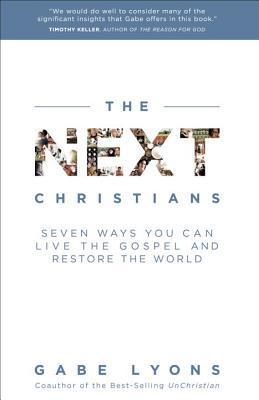 Do you remember a month ago, in my essay preceding the list of books about vocation and work, I
Do you remember a month ago, in my essay preceding the list of books about vocation and work, I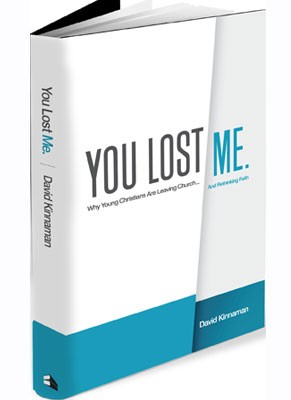 work, art,
work, art,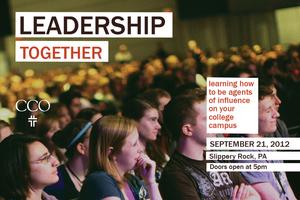 For the fourth
For the fourth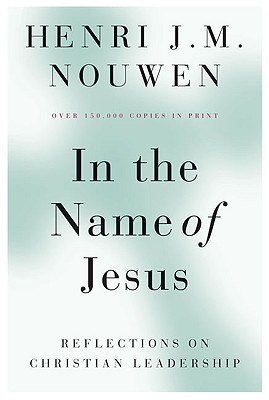 of the three
of the three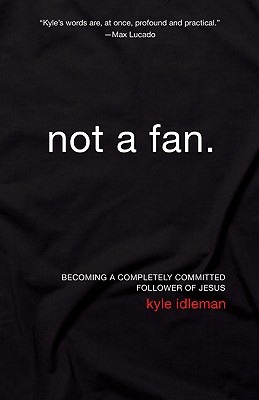 Paul Miller and Sacred Rhythms by
Paul Miller and Sacred Rhythms by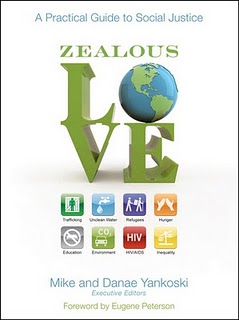 Social Justice edited by Michael Yankoski
Social Justice edited by Michael Yankoski 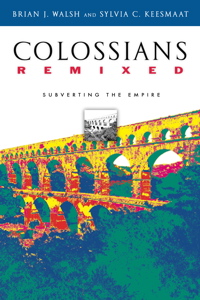 Goff has a chapter in it. One student picked
Goff has a chapter in it. One student picked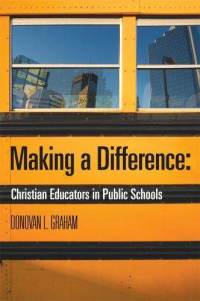 One education major bought
One education major bought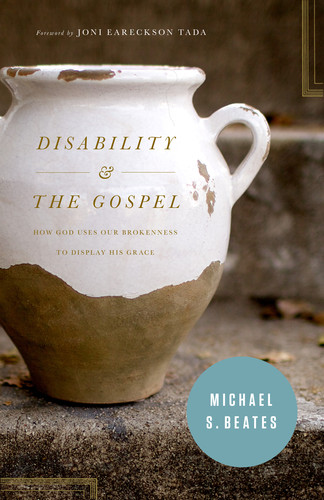 don’t know him.
don’t know him.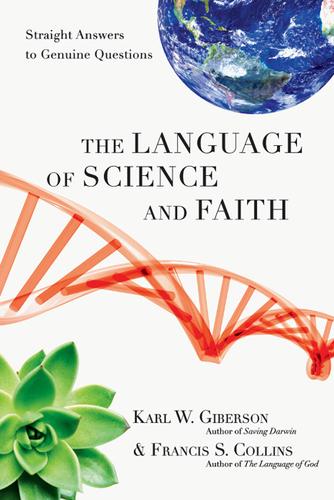 A science major was
A science major was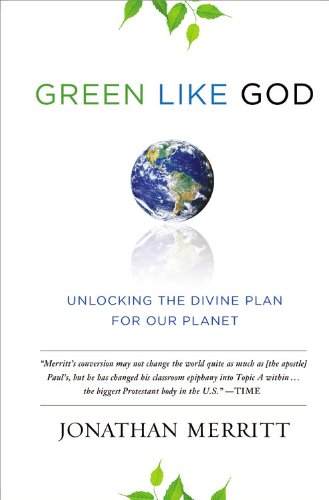 My friend Jonathan
My friend Jonathan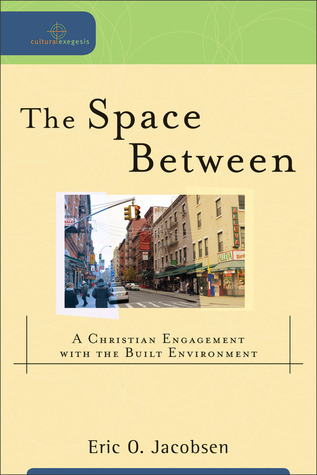
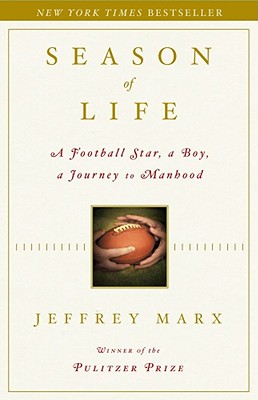 Season of Life (Simon & Schuster; $21.00.)
Season of Life (Simon & Schuster; $21.00.) 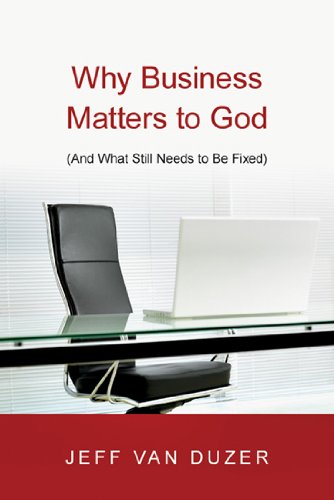 Business majors, and an
Business majors, and an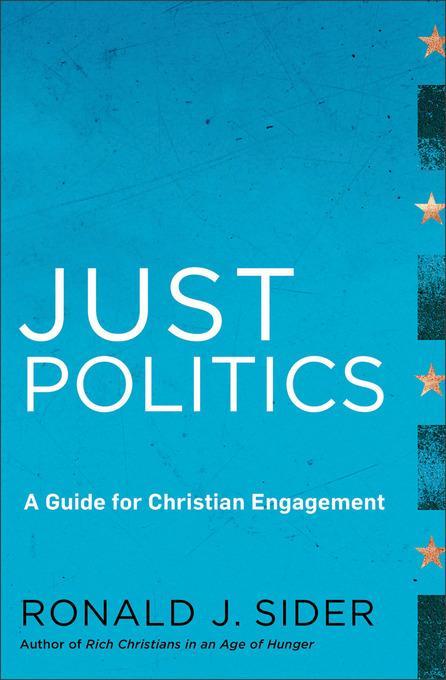
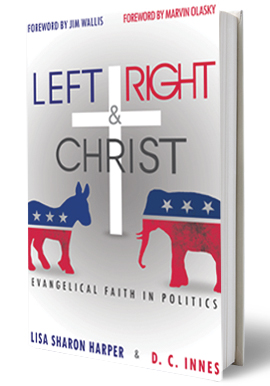 purchased the back-and-forth
purchased the back-and-forth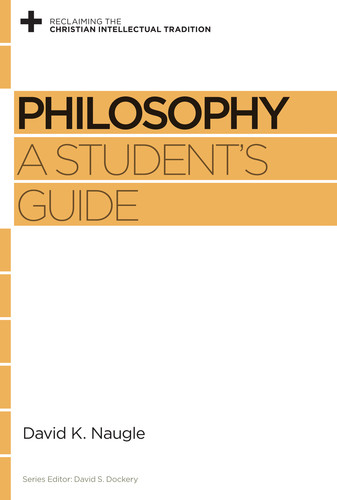 Student’s Guide by my very good
Student’s Guide by my very good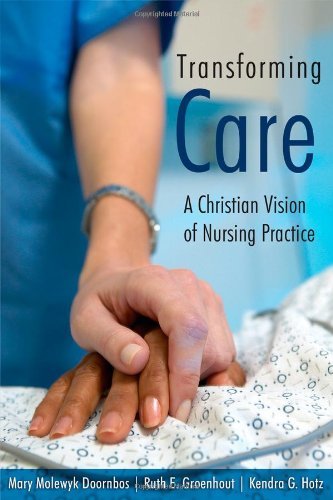 We sold a copy of
We sold a copy of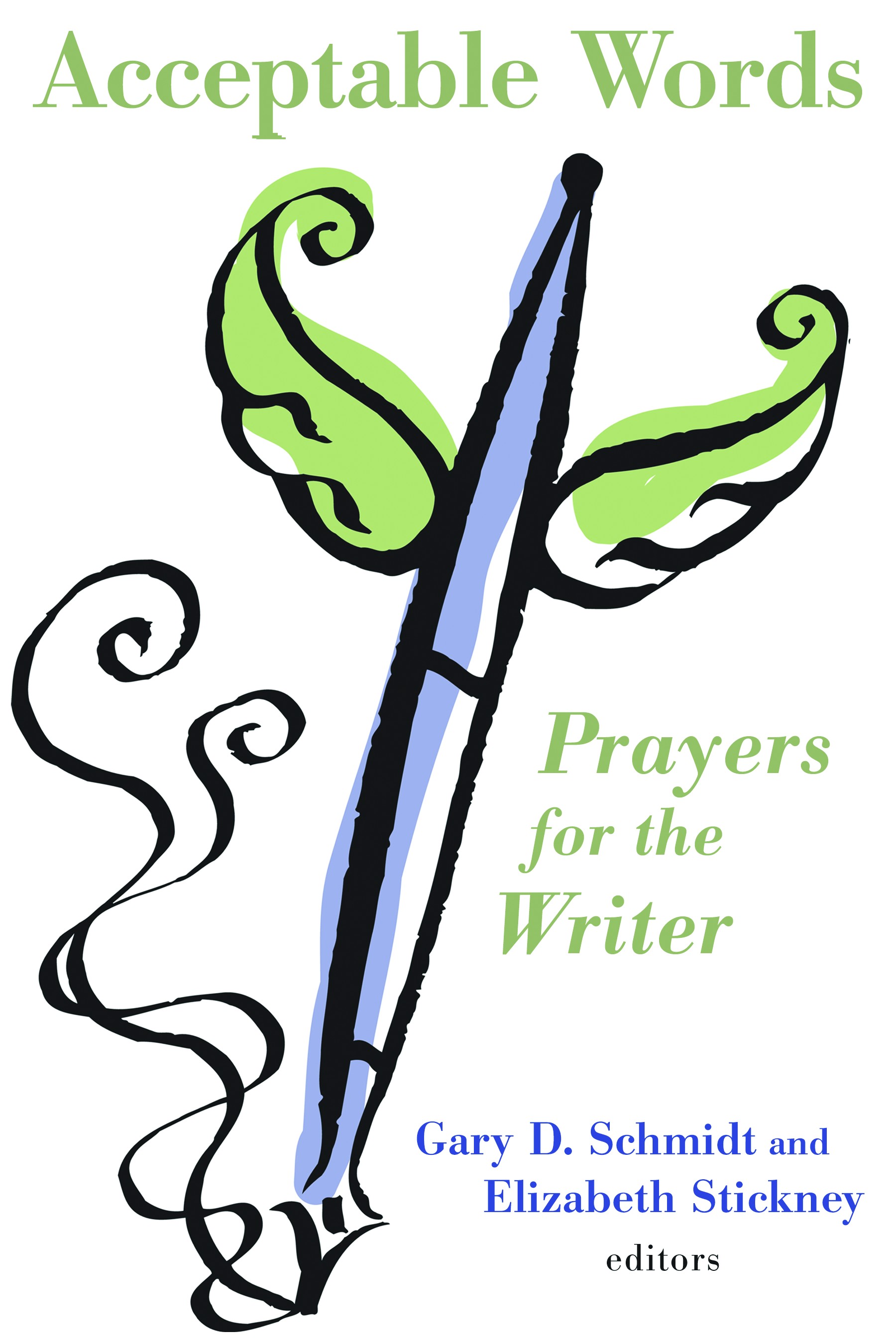 $16.00) which is a delight for anyone who loves reading or writing—you may know Schmidt as a popular YA novelist. We had some other books on lit and writing, sold one which was a religious exploration of Harry Potter, although that student maybe wasn’t even a lit major. And what a joy to have a young woman pick up the new The Terrible Speed of Mercy: A Spiritual Biography of Flannery O’Connor by Jonathan Rogers (Nelson; $15.99.)
$16.00) which is a delight for anyone who loves reading or writing—you may know Schmidt as a popular YA novelist. We had some other books on lit and writing, sold one which was a religious exploration of Harry Potter, although that student maybe wasn’t even a lit major. And what a joy to have a young woman pick up the new The Terrible Speed of Mercy: A Spiritual Biography of Flannery O’Connor by Jonathan Rogers (Nelson; $15.99.)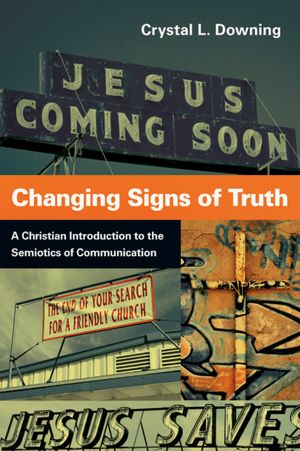 — to a communications major.
— to a communications major.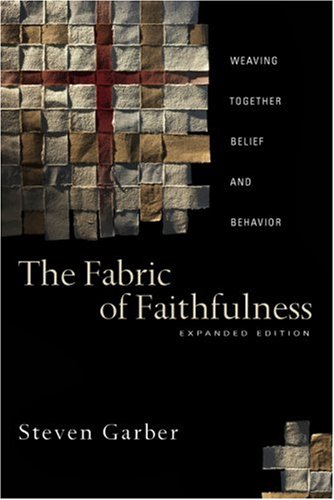 me of another book we sold there on Friday night (in fact, one that was mentioned more than once from up front) Steve Garber’s Fabric of Faithfulness: Weaving Together Belief and Behavior (IVP; $16.00.) You know this is a thoughtful and important book, and we often commend it for serious readers. If you want to get a flavor of the sorts of ways Steve gets all this said, earnestly and thoughtfully, check out this
me of another book we sold there on Friday night (in fact, one that was mentioned more than once from up front) Steve Garber’s Fabric of Faithfulness: Weaving Together Belief and Behavior (IVP; $16.00.) You know this is a thoughtful and important book, and we often commend it for serious readers. If you want to get a flavor of the sorts of ways Steve gets all this said, earnestly and thoughtfully, check out this 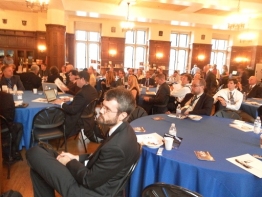 Even while the world’s leading news story was the unfolding drama of the savage attacks on US Embassies throughout the Arab world, inspired by stupid anti-Islamic propaganda, a group of us gathered in a small hall at Georgetown University to discuss and debate and learn about the Biblical call to peacemaking. A major theme of the
Even while the world’s leading news story was the unfolding drama of the savage attacks on US Embassies throughout the Arab world, inspired by stupid anti-Islamic propaganda, a group of us gathered in a small hall at Georgetown University to discuss and debate and learn about the Biblical call to peacemaking. A major theme of the 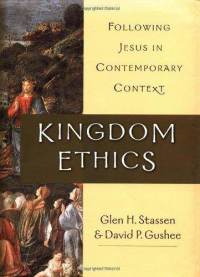 off titles like Ron Sider’s new book Just Politics: A Guide for Christian Engagement (Baker; $19.99) and to commend Lisa Sharon Harper’s pro-Democratic back and forth conversation with a political conservative, Left, Right & Christ: Evangelical Faith in Politics, co-authored by Kings College political science prof D.C. Innes (Russell Media; $22.99.) We think the world of the excellent study Kingdom Ethics: Following Jesus in Contemporary Context by Glen Stassen and David Gushee (IVP; $35.00) and enjoyed stacking ’em up with both authors there. I only wish we had sold more. It’s a great book.
off titles like Ron Sider’s new book Just Politics: A Guide for Christian Engagement (Baker; $19.99) and to commend Lisa Sharon Harper’s pro-Democratic back and forth conversation with a political conservative, Left, Right & Christ: Evangelical Faith in Politics, co-authored by Kings College political science prof D.C. Innes (Russell Media; $22.99.) We think the world of the excellent study Kingdom Ethics: Following Jesus in Contemporary Context by Glen Stassen and David Gushee (IVP; $35.00) and enjoyed stacking ’em up with both authors there. I only wish we had sold more. It’s a great book. 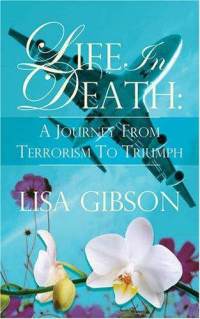
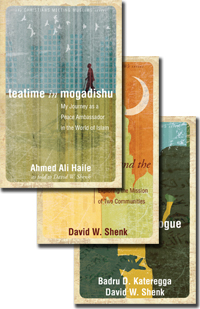 issues. He has had his book, co-authored with Badru Kateregga, A Muslim and Christian in Dialogue (Herald Press; $14.99) translated into Arabic, and he has been invited to share his it with radical Muslim leaders (who reported being astonished that a Christian could be so gracious, and that Jesus spoke so much about peace and love of enemy.) His Journeys of the Muslim Nation and the Christian Church: Exploring the Missions of Two Communities (Herald Press; $14.99) is nearly as classic and the riveting Teatime in Mogadishu: My Journey as a Peace Ambassador in the World of Islam by (Somalian convert to Christ) Ahmed Ali Haile as told to David Shenk (Herald Press: $14.99) is fabulously inspiring. I hope you consider these, perhaps for a book group or adult ed class as they are really quite interesting.
issues. He has had his book, co-authored with Badru Kateregga, A Muslim and Christian in Dialogue (Herald Press; $14.99) translated into Arabic, and he has been invited to share his it with radical Muslim leaders (who reported being astonished that a Christian could be so gracious, and that Jesus spoke so much about peace and love of enemy.) His Journeys of the Muslim Nation and the Christian Church: Exploring the Missions of Two Communities (Herald Press; $14.99) is nearly as classic and the riveting Teatime in Mogadishu: My Journey as a Peace Ambassador in the World of Islam by (Somalian convert to Christ) Ahmed Ali Haile as told to David Shenk (Herald Press: $14.99) is fabulously inspiring. I hope you consider these, perhaps for a book group or adult ed class as they are really quite interesting.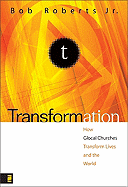 And what a joy it was to recommend titles to Texas mega-church pastor and author Bob Roberts, whose books Transformation: How Glocal Churches Transform Lives and the World (Zondervan; $19.99) and Glocalization: How Followers of Jesus Engage a Flat World (Zondervan; $18.99) help ordinary churches reach out in more global ways. We laughed about the word “glocal” which he borrowed from Len Sweet, who maybe swiped from VisaCard. Check out his
And what a joy it was to recommend titles to Texas mega-church pastor and author Bob Roberts, whose books Transformation: How Glocal Churches Transform Lives and the World (Zondervan; $19.99) and Glocalization: How Followers of Jesus Engage a Flat World (Zondervan; $18.99) help ordinary churches reach out in more global ways. We laughed about the word “glocal” which he borrowed from Len Sweet, who maybe swiped from VisaCard. Check out his 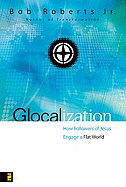 serve the world. His preaching and teaching this missional vision has paid off: the government of Viet Nam asked them to help create a curriculum to teach special education teachers; he is sending short term workers from his church to Afghanistan, too, doing simply extraordinary work. If you are inspired by that video idea, order his useful book Real-Time Connections: Linking Your Job with God’s Global Work (Zondervan; $16.99) which is pretty darn great. His flock are the real deal, doing stunning stuff in hard places.
serve the world. His preaching and teaching this missional vision has paid off: the government of Viet Nam asked them to help create a curriculum to teach special education teachers; he is sending short term workers from his church to Afghanistan, too, doing simply extraordinary work. If you are inspired by that video idea, order his useful book Real-Time Connections: Linking Your Job with God’s Global Work (Zondervan; $16.99) which is pretty darn great. His flock are the real deal, doing stunning stuff in hard places.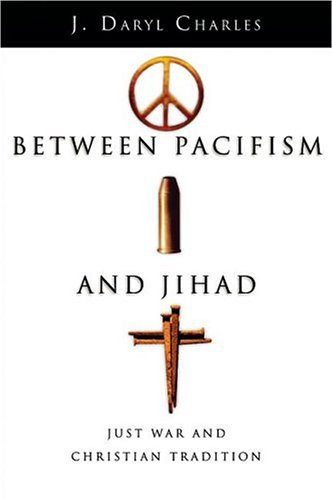 antinomian in this school of thought, so it to be considered differently than raw violence.) He reminded us quickly of the jus ad bello and the jus in bello criteria, and recommended the well-informed, no-nonsense book, War, Peace and Christianity: Questions and Answers From a Just-War Perspective by J. Daryl Charles & Timothy Demy (Crossway; $25.00) which we carry. I somewhat prefer, by the way, and featured, Charles’ earlier book, Between Pacifism and Jihad: Just War and Christian Tradition (IVP; $21.00) as it seems to me to be written with less caricature of the pacifist view, a bit of a downfall of the feisty Crossway one. We stock most of the standard just war theory texts, too, Walzer, Elshtain, Weigel, James Turner Johnston and the like.
antinomian in this school of thought, so it to be considered differently than raw violence.) He reminded us quickly of the jus ad bello and the jus in bello criteria, and recommended the well-informed, no-nonsense book, War, Peace and Christianity: Questions and Answers From a Just-War Perspective by J. Daryl Charles & Timothy Demy (Crossway; $25.00) which we carry. I somewhat prefer, by the way, and featured, Charles’ earlier book, Between Pacifism and Jihad: Just War and Christian Tradition (IVP; $21.00) as it seems to me to be written with less caricature of the pacifist view, a bit of a downfall of the feisty Crossway one. We stock most of the standard just war theory texts, too, Walzer, Elshtain, Weigel, James Turner Johnston and the like.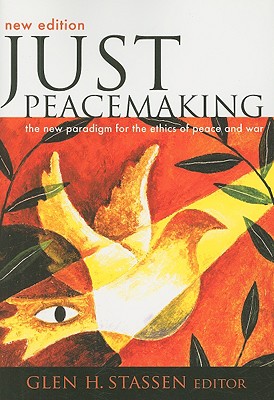 theorist that justifies nearly every war or a pure pacifist that refuses to engage the details of realpolitik. Rather than endlessly debate the matter about violence, why not work together to find ways to actually reduce the likelihood of armed violence? His edited volume–including 23 scholars, each offering a chapter on one of the just peacemaking principles—called Just Peacemaking: The new Paradigm for the Ethics of Peace and War (Pilgrim Press; $18.00) is a vital resource showing, from serious research, just what sort of things might happen to prevent warfare, to minimize injustices, to develop diplomatic pressures for human rights, all of which can help us find alternatives to war. Some may derisively dismiss this as “crypto-pacifism” but it is a good start, I think. Just war theorists and pacifists alike should agree that we should work to find solutions to conflict so that war would be, at least, usually, a last-ditch resort.
theorist that justifies nearly every war or a pure pacifist that refuses to engage the details of realpolitik. Rather than endlessly debate the matter about violence, why not work together to find ways to actually reduce the likelihood of armed violence? His edited volume–including 23 scholars, each offering a chapter on one of the just peacemaking principles—called Just Peacemaking: The new Paradigm for the Ethics of Peace and War (Pilgrim Press; $18.00) is a vital resource showing, from serious research, just what sort of things might happen to prevent warfare, to minimize injustices, to develop diplomatic pressures for human rights, all of which can help us find alternatives to war. Some may derisively dismiss this as “crypto-pacifism” but it is a good start, I think. Just war theorists and pacifists alike should agree that we should work to find solutions to conflict so that war would be, at least, usually, a last-ditch resort. it at almost half price. The publisher is giving us a bit of a deal, and we’re happy to pass the savings on to you. For a just a few weeks, we are offering A Thicker Jesus: Incarnational Discipleship for a Secular Age (Westminster/John Knox; $25.00) at a special pre-publication price. If you order it now, it is $10.00 off — just $15.00.) I’ve read some of the early version and it is serious, intense even, and draws on Bonhoeffer a bit.
it at almost half price. The publisher is giving us a bit of a deal, and we’re happy to pass the savings on to you. For a just a few weeks, we are offering A Thicker Jesus: Incarnational Discipleship for a Secular Age (Westminster/John Knox; $25.00) at a special pre-publication price. If you order it now, it is $10.00 off — just $15.00.) I’ve read some of the early version and it is serious, intense even, and draws on Bonhoeffer a bit.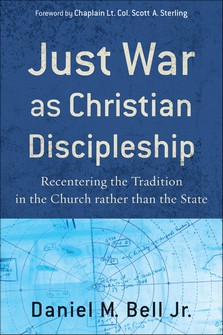 the State Daniel Bell, Jr. (Brazos) $21.99 Well, this is a book unlike most just war resources. As Chaplain Lt. Col. Scott Sterling writes in the forward “Bell has written a book that I wish I had during my deployments…contributes to the Christian soldier’s desire to embody the principles as a lifestyle…” Bell studied at Duke, teaches at a Lutheran seminary, and is ordained in the United Methodist church. I know of know book that does what this does, and we highly recommend it for anyone studying this topic. As Hauerwas says, Bell has “breathed new life into these debates…we are in his debt.”
the State Daniel Bell, Jr. (Brazos) $21.99 Well, this is a book unlike most just war resources. As Chaplain Lt. Col. Scott Sterling writes in the forward “Bell has written a book that I wish I had during my deployments…contributes to the Christian soldier’s desire to embody the principles as a lifestyle…” Bell studied at Duke, teaches at a Lutheran seminary, and is ordained in the United Methodist church. I know of know book that does what this does, and we highly recommend it for anyone studying this topic. As Hauerwas says, Bell has “breathed new life into these debates…we are in his debt.”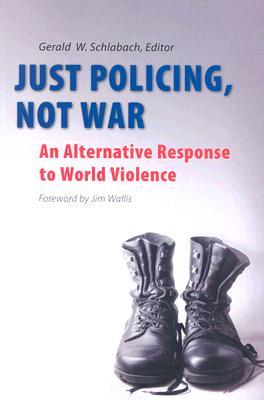 editor (Michael Glazier) $27.95 Schlabach is a Mennonite pacifist who has long been engaged not only in conflict resolution studies, but it fabulous conversations with just war theorist of the Roman Catholic tradition. Here, he offers the mutually agreed upon legitimacy of policing as a paradigm for thinking about some common ground, a different model than the conventional military one. There are serious ideas floated here, and solid debate. There are ten good chapters, from Anabaptists and Jesuits, Presbyterians and Catholics, both more conservative and more liberal. Nicely dedicated to both John Paul II and John Howard Yoder.
editor (Michael Glazier) $27.95 Schlabach is a Mennonite pacifist who has long been engaged not only in conflict resolution studies, but it fabulous conversations with just war theorist of the Roman Catholic tradition. Here, he offers the mutually agreed upon legitimacy of policing as a paradigm for thinking about some common ground, a different model than the conventional military one. There are serious ideas floated here, and solid debate. There are ten good chapters, from Anabaptists and Jesuits, Presbyterians and Catholics, both more conservative and more liberal. Nicely dedicated to both John Paul II and John Howard Yoder. have not traveled to the great
have not traveled to the great
 Families could use this, I’d think, in creative family devotions. Some
Families could use this, I’d think, in creative family devotions. Some There is a deeply
There is a deeply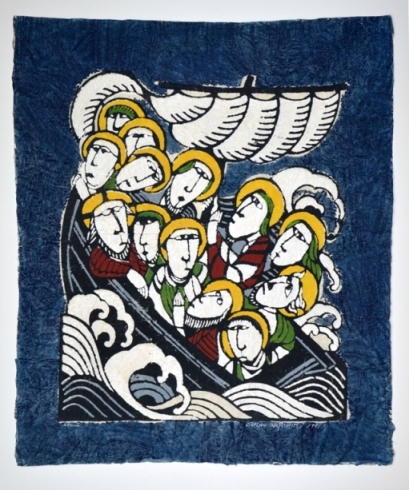 Interestingly, and importantly, in a
Interestingly, and importantly, in a Kohan tells us a lot
Kohan tells us a lot
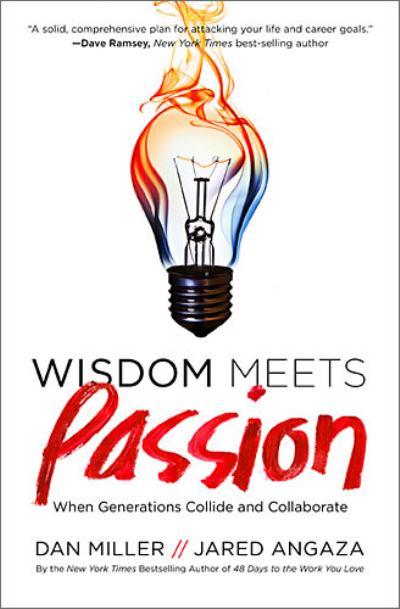 book that carries a bunch of vibrant endorsements and looks useful and fun. Dave Ramsey says of Wisdom Meets Passion “A solid, comprehensive plan for attacking your life and career goals.” It looks great.
book that carries a bunch of vibrant endorsements and looks useful and fun. Dave Ramsey says of Wisdom Meets Passion “A solid, comprehensive plan for attacking your life and career goals.” It looks great. 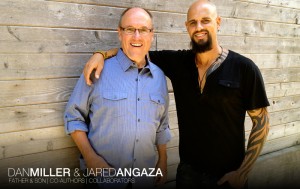 I don’t think you, or the people you influence, want to live in mediocrity. Even in this tricky economy, God may be inspiring some of us to new entrepreneurial projects or ways to find more meaningful work. There are ways to draw on solid thinking and great vision, living inspired by both our wisdom and passion.
I don’t think you, or the people you influence, want to live in mediocrity. Even in this tricky economy, God may be inspiring some of us to new entrepreneurial projects or ways to find more meaningful work. There are ways to draw on solid thinking and great vision, living inspired by both our wisdom and passion.  offered
offered  We have often reviewed books on vocation and calling, as well as books about work and career (not to mention offering for free at our website the extensive bibliographical tool
We have often reviewed books on vocation and calling, as well as books about work and career (not to mention offering for free at our website the extensive bibliographical tool  ago. The Career Development office put together the service, and they included a responsive reading from the book The Call: Finding and Fulfilling the Central Purpose of Your Life bu Os Guinness (Nelson; $17.99.) Did they know it is one of my all-time favorite books? Did they expect that I would cite it? It was such a fitting way into a liturgical celebration of God’s call into His kingdom, and the subsequent duties to serve the great King in every zone of life. Of course we shouldn’t reduce our many callings to only our paid jobs, and, in fact, the director of the Career Development office explained to me that they (ironically) try not to use the word “career” for a variety of reasons, noting the baggage and ass
ago. The Career Development office put together the service, and they included a responsive reading from the book The Call: Finding and Fulfilling the Central Purpose of Your Life bu Os Guinness (Nelson; $17.99.) Did they know it is one of my all-time favorite books? Did they expect that I would cite it? It was such a fitting way into a liturgical celebration of God’s call into His kingdom, and the subsequent duties to serve the great King in every zone of life. Of course we shouldn’t reduce our many callings to only our paid jobs, and, in fact, the director of the Career Development office explained to me that they (ironically) try not to use the word “career” for a variety of reasons, noting the baggage and ass Leading Lives That Matter: What We Should Do and Who We Should Be edited by Mark Schwehn & Dorothy Bass (Eerdmans) $26.00 With their huge involvement in the Lily grants programs to encourage vocational thinking at Christian colleges and seminaries, it was natural that they compiled this great, great (and great big) resource about living lives with purpose and influence. I’ve raved about this at BookNotes from time to time as it includes great literary figures (many not necessarily Christian) and is just such a rich and wonderful resource—at least for those who love great writers, etc. Poets, mystics, reformers, philosophers, writers and leaders of all sorts are excerpted nicely, from Homer and Milton to Dietrich Bonhoeffer and Dorothy Day, Wendell Berry to Robert Frost. Highly recommended.
Leading Lives That Matter: What We Should Do and Who We Should Be edited by Mark Schwehn & Dorothy Bass (Eerdmans) $26.00 With their huge involvement in the Lily grants programs to encourage vocational thinking at Christian colleges and seminaries, it was natural that they compiled this great, great (and great big) resource about living lives with purpose and influence. I’ve raved about this at BookNotes from time to time as it includes great literary figures (many not necessarily Christian) and is just such a rich and wonderful resource—at least for those who love great writers, etc. Poets, mystics, reformers, philosophers, writers and leaders of all sorts are excerpted nicely, from Homer and Milton to Dietrich Bonhoeffer and Dorothy Day, Wendell Berry to Robert Frost. Highly recommended. $12.99 Some have told me this was the best combination of the Biblical overview of creation-fall-redemption-restoration story of Scripture and the language of purpose (exploring, then, the themes of vocation and call) that they’ve ever read. Rev. Drew is certainly a solid writer, well crafting mature sentences in wise and wonderful ways. We suggest it often and heartily commend it for any readers. Endorsements from the likes of Tim Keller remind us that it is highly regarded, well considered, helpful and theologically rich, without being arcane or abstract. Excellent.
$12.99 Some have told me this was the best combination of the Biblical overview of creation-fall-redemption-restoration story of Scripture and the language of purpose (exploring, then, the themes of vocation and call) that they’ve ever read. Rev. Drew is certainly a solid writer, well crafting mature sentences in wise and wonderful ways. We suggest it often and heartily commend it for any readers. Endorsements from the likes of Tim Keller remind us that it is highly regarded, well considered, helpful and theologically rich, without being arcane or abstract. Excellent. What Is Vocation? Steven J. Nichols (P&R; $3.99) This is a wonderful, small booklet, similar to the companion booklet What is A Christian Worldview by Philip Ryken (P&R; $5.00) that we often promote. It could be used in small groups, a quick adult ed class, or given to high school seniors. Steve gets it just right; he’s a nearly local guy, by the way, a Lancaster friend, writer of popular level books on church history and several biographies of folks like Luther and Edwards. This brief staple-bound booklet is as handsome as it is readable and could be life-changing. Steve is evangelical and Reformed but I am confident that this little book could be used in any sort of congregation. Maybe you should order a dozen or so and pass ’em out—at least to youth who are thinking about going off to college, or young students needing to be encouraged to think about calling as they consider their majors, or for adults who may be longing to be affirmed in their line of work but aren’t up for reading a big study. (Oh, if only pastors did this more for their flocks, affirming the work-life of the laity! What a difference it could make!) The best small (and least expensive) resource of which we know.
What Is Vocation? Steven J. Nichols (P&R; $3.99) This is a wonderful, small booklet, similar to the companion booklet What is A Christian Worldview by Philip Ryken (P&R; $5.00) that we often promote. It could be used in small groups, a quick adult ed class, or given to high school seniors. Steve gets it just right; he’s a nearly local guy, by the way, a Lancaster friend, writer of popular level books on church history and several biographies of folks like Luther and Edwards. This brief staple-bound booklet is as handsome as it is readable and could be life-changing. Steve is evangelical and Reformed but I am confident that this little book could be used in any sort of congregation. Maybe you should order a dozen or so and pass ’em out—at least to youth who are thinking about going off to college, or young students needing to be encouraged to think about calling as they consider their majors, or for adults who may be longing to be affirmed in their line of work but aren’t up for reading a big study. (Oh, if only pastors did this more for their flocks, affirming the work-life of the laity! What a difference it could make!) The best small (and least expensive) resource of which we know. Here I Am: Now What on Earth Should I Be Doing? Quentin Schultze (Baker) $14.00 What a great little book, wise and helpful, about being stewards of the various gifts God gives us, in the various spheres he calls us to! Easy-to-read, this is one of the best, with reasonable theological foundations and lots of great illustrative stories and anecdotes Quent is a great storyteller—he is the head of the communications department at Calvin College in Michigan (and has a remarkable book on virtues needed for our electronic age and another which is the definitive book on communication and mass media from a Christian perspective) What a story this guy has, and how wonderfully he’s used his own scholarly vocation to help others with these basics. Highly recommended.
Here I Am: Now What on Earth Should I Be Doing? Quentin Schultze (Baker) $14.00 What a great little book, wise and helpful, about being stewards of the various gifts God gives us, in the various spheres he calls us to! Easy-to-read, this is one of the best, with reasonable theological foundations and lots of great illustrative stories and anecdotes Quent is a great storyteller—he is the head of the communications department at Calvin College in Michigan (and has a remarkable book on virtues needed for our electronic age and another which is the definitive book on communication and mass media from a Christian perspective) What a story this guy has, and how wonderfully he’s used his own scholarly vocation to help others with these basics. Highly recommended.  (Orbis) $22.00 All right, forgive me for pushing your envelope a bit here. This is liberation theology (at best) and is a bit odd theologically (we’re one with the universe, you know.) Still, there is something really right about this, about how our callings and vocations are discerned somewhat in light of the great needs of the world. How can we be transformed to care deeply about the injustices of our day, and how can we “hear” God’s call to work in ways and places that are touched by the griefs of this broken world? You may not appreciate all of the author’s theological baggage (or maybe you will) but, regardless, the heart of this book and its h
(Orbis) $22.00 All right, forgive me for pushing your envelope a bit here. This is liberation theology (at best) and is a bit odd theologically (we’re one with the universe, you know.) Still, there is something really right about this, about how our callings and vocations are discerned somewhat in light of the great needs of the world. How can we be transformed to care deeply about the injustices of our day, and how can we “hear” God’s call to work in ways and places that are touched by the griefs of this broken world? You may not appreciate all of the author’s theological baggage (or maybe you will) but, regardless, the heart of this book and its h What Do I Do With My Life: Serving God Through Work Kenneth Baker (Faith Alive) $9.99 This is a small group resource that is excellent for small Bible study groups or adult Sunday school classes. There is a bit to read —five short readings for each day of the week (so each member will need one) but it is mostly designed for good conversations. It has helpful discussion questions, some activities, lots of Bible verses to consider exploring what the Scriptures say about the 9 to 5 and our other callings to work in various aspects of our lives. This is a very fine and solid overview of missional thinking and how our various labors matters to God—I don’t know of any resource like this for small groups. Thanks to the CRC publishing arm for doing such quality work. in this case for small groups.
What Do I Do With My Life: Serving God Through Work Kenneth Baker (Faith Alive) $9.99 This is a small group resource that is excellent for small Bible study groups or adult Sunday school classes. There is a bit to read —five short readings for each day of the week (so each member will need one) but it is mostly designed for good conversations. It has helpful discussion questions, some activities, lots of Bible verses to consider exploring what the Scriptures say about the 9 to 5 and our other callings to work in various aspects of our lives. This is a very fine and solid overview of missional thinking and how our various labors matters to God—I don’t know of any resource like this for small groups. Thanks to the CRC publishing arm for doing such quality work. in this case for small groups. Work Matters: Lessons from Scripture R. Paul Stevens (Eerdmans) $16.00 Paul Stevens, long-standing professor at Regent College in B.C., has been one of the best voices and most steadfast allies in the effort to educate about the meaning and dignity of labor. He has encouraged this conversation for decades, and we’ve included several other books of his on this list.
Work Matters: Lessons from Scripture R. Paul Stevens (Eerdmans) $16.00 Paul Stevens, long-standing professor at Regent College in B.C., has been one of the best voices and most steadfast allies in the effort to educate about the meaning and dignity of labor. He has encouraged this conversation for decades, and we’ve included several other books of his on this list. $15.99 A few friends of mine have had some opportunity to teach and consult with the folks at Tom Nelson’s church and it seems to be nearly one of the nation’s best centers of culturally-engaged, thoughtful nurture of the gifts and insights of laypeople and professionals for marketplace service. After years of reflecting on the Word as it is broken open in their midst and equally paying attention to the contexts of the various workers at the church, this brave pastor has learned to equip the people for relating faith and work, Sunday and Monday, prayer and public life. Reverend Nelson and his staff and congregants are really doing it, and their vision for why it all matters is nicely spelled out in a way you’ll surely appreciate. There are numerous two-page sidebars, too, documenting the stories of some of the folks in the church—a brilliant, Christ-honoring architect, an ethical businessperson, a good teacher, a Christian lawyer, and the like.
$15.99 A few friends of mine have had some opportunity to teach and consult with the folks at Tom Nelson’s church and it seems to be nearly one of the nation’s best centers of culturally-engaged, thoughtful nurture of the gifts and insights of laypeople and professionals for marketplace service. After years of reflecting on the Word as it is broken open in their midst and equally paying attention to the contexts of the various workers at the church, this brave pastor has learned to equip the people for relating faith and work, Sunday and Monday, prayer and public life. Reverend Nelson and his staff and congregants are really doing it, and their vision for why it all matters is nicely spelled out in a way you’ll surely appreciate. There are numerous two-page sidebars, too, documenting the stories of some of the folks in the church—a brilliant, Christ-honoring architect, an ethical businessperson, a good teacher, a Christian lawyer, and the like.  Every Good Endeavor: Connecting Your Work to God’s Plan for the World Timothy Keller (Dutton) $26.95 NOT YET RELEASED, DUE NOVEMBER 2012. I hope you know about the Redeemer Presbyterian Center for Faith and Work, one of the premier ministries offering encouragement to professionals in several spheres of service. This book emerges from Kellers good concern for the laypeople in his Manhattan church and his strong realizations that we are all called to serve in various institutions across all of culture as agents of God’s Kingdom. You can
Every Good Endeavor: Connecting Your Work to God’s Plan for the World Timothy Keller (Dutton) $26.95 NOT YET RELEASED, DUE NOVEMBER 2012. I hope you know about the Redeemer Presbyterian Center for Faith and Work, one of the premier ministries offering encouragement to professionals in several spheres of service. This book emerges from Kellers good concern for the laypeople in his Manhattan church and his strong realizations that we are all called to serve in various institutions across all of culture as agents of God’s Kingdom. You can  Work: A Kingdom Perspective on Labor Ben Witherington (Eerdmans) $18.00 This is pretty short but don’t be deceived by its simple size and shape. Ben Witherington is one of the finest New Testament scholars on the planet (he teaches at the United Methodist seminary, Asbury) and has a profound awareness of the teachings about the Kingdom of God deep in his bones. As he writes about work one can sense his great vision, his good concerns, his practical, Biblical insight, especially as he unpacks some of the parables of Jesus to help us get a Kingdom vision of our jobs and labor. This helpfully breaks down the pagan sacred-secular divide and calls us all to a robust way of life where discipleship colors all we do, even our daily 9-to-5 labor. Very, very good and its Biblical teaching makes it ideal for adult Sunday school classes or to inspire a sermon series on work.
Work: A Kingdom Perspective on Labor Ben Witherington (Eerdmans) $18.00 This is pretty short but don’t be deceived by its simple size and shape. Ben Witherington is one of the finest New Testament scholars on the planet (he teaches at the United Methodist seminary, Asbury) and has a profound awareness of the teachings about the Kingdom of God deep in his bones. As he writes about work one can sense his great vision, his good concerns, his practical, Biblical insight, especially as he unpacks some of the parables of Jesus to help us get a Kingdom vision of our jobs and labor. This helpfully breaks down the pagan sacred-secular divide and calls us all to a robust way of life where discipleship colors all we do, even our daily 9-to-5 labor. Very, very good and its Biblical teaching makes it ideal for adult Sunday school classes or to inspire a sermon series on work.  Kingdom Calling: Vocational Stewardship for the Common Good by Amy Sherman (IVP) $16.00 We have celebrated this excellent book on several occasions, thinking it to be one of the very best books in years on this topic. Truly, this is masterful and adds excellent new insight, new layers of meaning, and teaches in great and helpful detail about four ways of relating faith and work. See our comments here and here. Kingdom Calling is a serious, thorough, study of how our jobs can become avenues of social change honoring God and loving neighbor as we steward our vocations for the sake of the common good. Not for beginners, but if you’ve read a book or two on calling and on work, this is simply a must-have, must-read.
Kingdom Calling: Vocational Stewardship for the Common Good by Amy Sherman (IVP) $16.00 We have celebrated this excellent book on several occasions, thinking it to be one of the very best books in years on this topic. Truly, this is masterful and adds excellent new insight, new layers of meaning, and teaches in great and helpful detail about four ways of relating faith and work. See our comments here and here. Kingdom Calling is a serious, thorough, study of how our jobs can become avenues of social change honoring God and loving neighbor as we steward our vocations for the sake of the common good. Not for beginners, but if you’ve read a book or two on calling and on work, this is simply a must-have, must-read.  Shop Class as Soulcraft: An Inquiry into the Value of Work Matthew Crawford (Penguin) $15.00 I hope you recall how we touted this when it first came out, and the buzz it gathered (including a “notable book” of the year award from the New York Time Book Review.) This is beautiful, thoughtful, rousing—Crawford was a white-collar scholar at a think-tank who hated his job, and felt the disconnect between what he was doing and who he was becoming untenable. He quit, opened a motorcycle repair shop, and offers here this extended meditation on shop classes, liberal arts, unhelpful education, working with one’s hands, and finding fulfillment in blue collar jobs. How many philosopher/mechanic’s do you know? This is entertaining and profound, hoping to restore greater honor to the manual trades.
Shop Class as Soulcraft: An Inquiry into the Value of Work Matthew Crawford (Penguin) $15.00 I hope you recall how we touted this when it first came out, and the buzz it gathered (including a “notable book” of the year award from the New York Time Book Review.) This is beautiful, thoughtful, rousing—Crawford was a white-collar scholar at a think-tank who hated his job, and felt the disconnect between what he was doing and who he was becoming untenable. He quit, opened a motorcycle repair shop, and offers here this extended meditation on shop classes, liberal arts, unhelpful education, working with one’s hands, and finding fulfillment in blue collar jobs. How many philosopher/mechanic’s do you know? This is entertaining and profound, hoping to restore greater honor to the manual trades. $26.95 It is worth recalling that King lost his life while organizing garbage collectors. He often spoke of the dignity of all work, the need to serve God with the work of one’s hand, to strive for excellence and integrity in any job. And, of course, he spoke out against injustices in our economic system, advocated for worker’s rights. This is an amazing collection of his writings and speeches–most never published before!—on this topic.
$26.95 It is worth recalling that King lost his life while organizing garbage collectors. He often spoke of the dignity of all work, the need to serve God with the work of one’s hand, to strive for excellence and integrity in any job. And, of course, he spoke out against injustices in our economic system, advocated for worker’s rights. This is an amazing collection of his writings and speeches–most never published before!—on this topic. Taking Your Soul to Work: Overcoming the Nine Deadly Sins of the Workplace R. Paul Stevens & Alvin Ung with a foreword by Eugene Peterson (Eerdmans) $14.99 If there was a “lifetime achievement award” in the field of Christian marketplace ministry, daily discipleship for ordinary folks, for “seven days a week faith” (as one of his many books puts it) Paul Stevens would be just such an honoree. He has given his life to thinking hard and writing well about the interface of faith and the work-world, and, especially, Christians in the business environment. He is professor emeritus of marketplace theology and spirituality at Regent College in Vancouver, perhaps the finest place to study this topic. (You can see a bit about his books here.) As we’ve suggested above, anything he writes is commendable, serious, important.
Taking Your Soul to Work: Overcoming the Nine Deadly Sins of the Workplace R. Paul Stevens & Alvin Ung with a foreword by Eugene Peterson (Eerdmans) $14.99 If there was a “lifetime achievement award” in the field of Christian marketplace ministry, daily discipleship for ordinary folks, for “seven days a week faith” (as one of his many books puts it) Paul Stevens would be just such an honoree. He has given his life to thinking hard and writing well about the interface of faith and the work-world, and, especially, Christians in the business environment. He is professor emeritus of marketplace theology and spirituality at Regent College in Vancouver, perhaps the finest place to study this topic. (You can see a bit about his books here.) As we’ve suggested above, anything he writes is commendable, serious, important.  Paddison (Zondervan) $14.99 People who we trust say that this is truly helpful; several sharp young women who care about their own unique struggles studied it over and concluded it was worth purchasing. Everybody wonders if the shoes on the cover work. The allusion to Eat Pray Love in the title, isn’t developed at all in the book; it would have been a hoot if she had. The author is a top-shelf executive, does important work in the corporate world and brings both Biblical vision and practical advise for women in the work-world. It is pretty interesting to see how she was able to raise her children and hold down a demanding job, and how she maintained a solid and inspiring faith through it all. It may be a cliche to say she understands how to juggle career and family and how she and her husband navigated their otherwise conservative, two-career marriage. Early reviews have been passionately favorable—“buy this book for your granddaughters” one grandma writes. Another said it was the first book she ever read that understood the tensions of her own life. And ya know what? Not surprisingly, several folks at a recent conference said that it would be very helpful for husbands of career women, too.
Paddison (Zondervan) $14.99 People who we trust say that this is truly helpful; several sharp young women who care about their own unique struggles studied it over and concluded it was worth purchasing. Everybody wonders if the shoes on the cover work. The allusion to Eat Pray Love in the title, isn’t developed at all in the book; it would have been a hoot if she had. The author is a top-shelf executive, does important work in the corporate world and brings both Biblical vision and practical advise for women in the work-world. It is pretty interesting to see how she was able to raise her children and hold down a demanding job, and how she maintained a solid and inspiring faith through it all. It may be a cliche to say she understands how to juggle career and family and how she and her husband navigated their otherwise conservative, two-career marriage. Early reviews have been passionately favorable—“buy this book for your granddaughters” one grandma writes. Another said it was the first book she ever read that understood the tensions of her own life. And ya know what? Not surprisingly, several folks at a recent conference said that it would be very helpful for husbands of career women, too. Our Souls at Work: How Great Leaders Live Their Faith in the Global Marketplace edited by Mark Russell (Russell Media) $19.95 This is a vibrant, colorful, book, handsomely designed with some contemporary, graphic pizazz and exciting testimonials and clear-headed insight to match. One of the best new books in this whole “marketplace ministry” field, it is essentially a gathering of short pieces by a variety of business leaders, arranged by topic, most quite practical. So you’ll hear a handful of businessmen or women talking about balance, or integrity, or leadership, or character. There is a section on calling, a section on handling money, a section of stories on relationships. There is one called “pluralism” which is very strong (and still a vexing matter to some, how to respect and honor the diversity of views in the modern workplace.) There is a section on sharing one’s faith, and a section of important lessons about ethics. The section on giving could inspire young philanthropists and remind us about giving back, as they say.
Our Souls at Work: How Great Leaders Live Their Faith in the Global Marketplace edited by Mark Russell (Russell Media) $19.95 This is a vibrant, colorful, book, handsomely designed with some contemporary, graphic pizazz and exciting testimonials and clear-headed insight to match. One of the best new books in this whole “marketplace ministry” field, it is essentially a gathering of short pieces by a variety of business leaders, arranged by topic, most quite practical. So you’ll hear a handful of businessmen or women talking about balance, or integrity, or leadership, or character. There is a section on calling, a section on handling money, a section of stories on relationships. There is one called “pluralism” which is very strong (and still a vexing matter to some, how to respect and honor the diversity of views in the modern workplace.) There is a section on sharing one’s faith, and a section of important lessons about ethics. The section on giving could inspire young philanthropists and remind us about giving back, as they say. Let Your Life Speak: Listening for the Voice of Vocation Parker Palmer (Jossey Bass) $18.95 This is short and contemplative, written by a passionate, sweet Quaker with huge concerns about inner integrity and public justice. He’s all about finding that place where you can best serve by being reflective and intentional about one’s own heart’s truths. Yeah, he’s a bit touchy feely for some, but it is honestly written, elegant in a subdued manner, caring, and full of gentle passion. Very impressive for such a short rumination. A lot of people love this, making it one of the biggest sellers in this topic. Is it wrong to say “to thy own self be true?” Or, as Beuchner has, “listen to your life?” Lovely.
Let Your Life Speak: Listening for the Voice of Vocation Parker Palmer (Jossey Bass) $18.95 This is short and contemplative, written by a passionate, sweet Quaker with huge concerns about inner integrity and public justice. He’s all about finding that place where you can best serve by being reflective and intentional about one’s own heart’s truths. Yeah, he’s a bit touchy feely for some, but it is honestly written, elegant in a subdued manner, caring, and full of gentle passion. Very impressive for such a short rumination. A lot of people love this, making it one of the biggest sellers in this topic. Is it wrong to say “to thy own self be true?” Or, as Beuchner has, “listen to your life?” Lovely. Stephen Martin (Sorin Books) $14.95 The first section of this wonderfully written, recent book is nearly a memoir as Martin tells of his growing dis-ease at his journalistic job, his struggle to understand his ill-health and anxiety, his religious confusion, and his mental state–worrying about death, almost unable to finish even a simple task.
Stephen Martin (Sorin Books) $14.95 The first section of this wonderfully written, recent book is nearly a memoir as Martin tells of his growing dis-ease at his journalistic job, his struggle to understand his ill-health and anxiety, his religious confusion, and his mental state–worrying about death, almost unable to finish even a simple task. The Fabric of This World: Inquiries into Calling, Career Choice, and the Design of Human Work Lee Hardy (Eerdmans) $20.00 If the previous few are a strong because they are anecdotal, testifying to God’s own tender leading in the lives of their authors, useful for those wanting gentle guidance, this is strong because it is painstakingly clear about his solid, Reformed worldview and the distinctives of a Biblical view of work. This, actually, was one of the early, really good books, written in the late 70s that we promoted then; a recent look through reminded me how good it is, how thoughtful, how nicely rooted in what some call a Kuyperian or reformational vision. It does have a bit about the corporate world, so is especially good for those entering that milieu. His insights on management (and his critique of classic management philosophies that are not congenial to Christian convictions about calling) are foundational and very important. Dr. Hardy teaches philosophy at Calvin College in Grand Rapids.
The Fabric of This World: Inquiries into Calling, Career Choice, and the Design of Human Work Lee Hardy (Eerdmans) $20.00 If the previous few are a strong because they are anecdotal, testifying to God’s own tender leading in the lives of their authors, useful for those wanting gentle guidance, this is strong because it is painstakingly clear about his solid, Reformed worldview and the distinctives of a Biblical view of work. This, actually, was one of the early, really good books, written in the late 70s that we promoted then; a recent look through reminded me how good it is, how thoughtful, how nicely rooted in what some call a Kuyperian or reformational vision. It does have a bit about the corporate world, so is especially good for those entering that milieu. His insights on management (and his critique of classic management philosophies that are not congenial to Christian convictions about calling) are foundational and very important. Dr. Hardy teaches philosophy at Calvin College in Grand Rapids. Hearing God: Developing a Conversational Relationship with God expanded and revised Dallas Willard (IVP) $16.00 I suppose I should end on a note like the one above, directly about calling and career, vocational choices and practical tools for assessing one’s life. But I’d like to end here, a basic, solid, mature, and thoughtful guide for any and all of us. Do we all not want to learn how to hear God’s voice? Can we align ourselves with the promptings of the Spirit? Do these wise and practical spiritual disciplines form us in ways that allow us to take up our discipleship callings into all of life? Of the many books exploring what we mean by “God’s will” and the practices of determining our life direction, this is simply the best.. A must-read, in my view.
Hearing God: Developing a Conversational Relationship with God expanded and revised Dallas Willard (IVP) $16.00 I suppose I should end on a note like the one above, directly about calling and career, vocational choices and practical tools for assessing one’s life. But I’d like to end here, a basic, solid, mature, and thoughtful guide for any and all of us. Do we all not want to learn how to hear God’s voice? Can we align ourselves with the promptings of the Spirit? Do these wise and practical spiritual disciplines form us in ways that allow us to take up our discipleship callings into all of life? Of the many books exploring what we mean by “God’s will” and the practices of determining our life direction, this is simply the best.. A must-read, in my view.